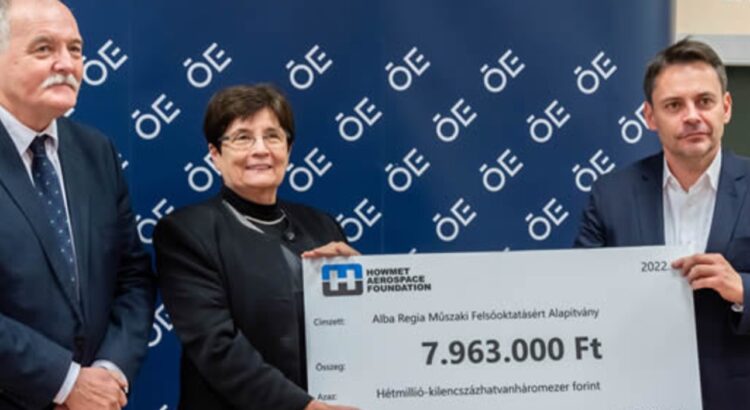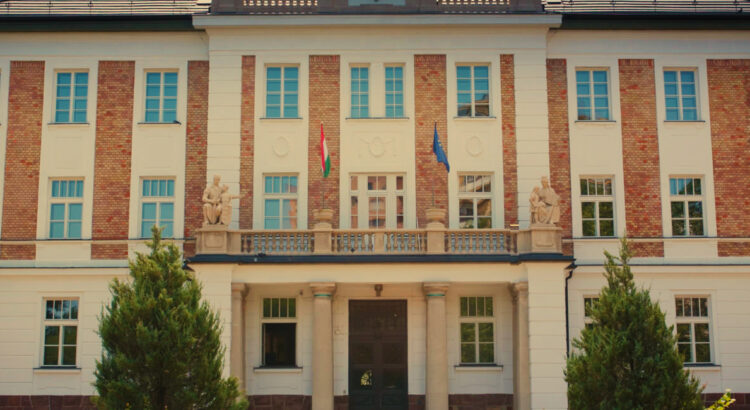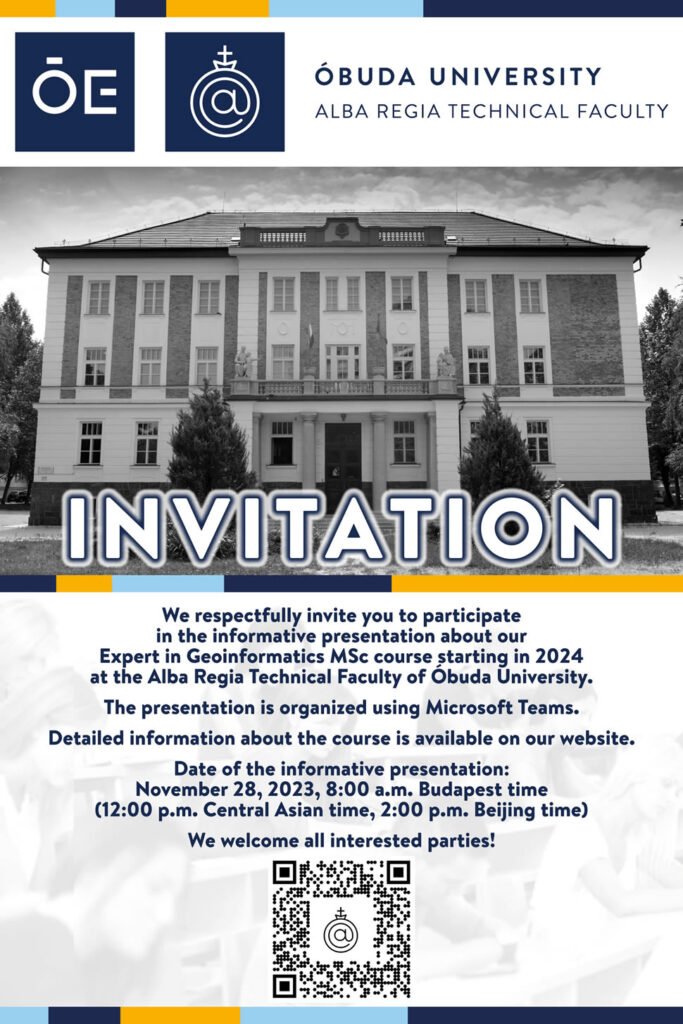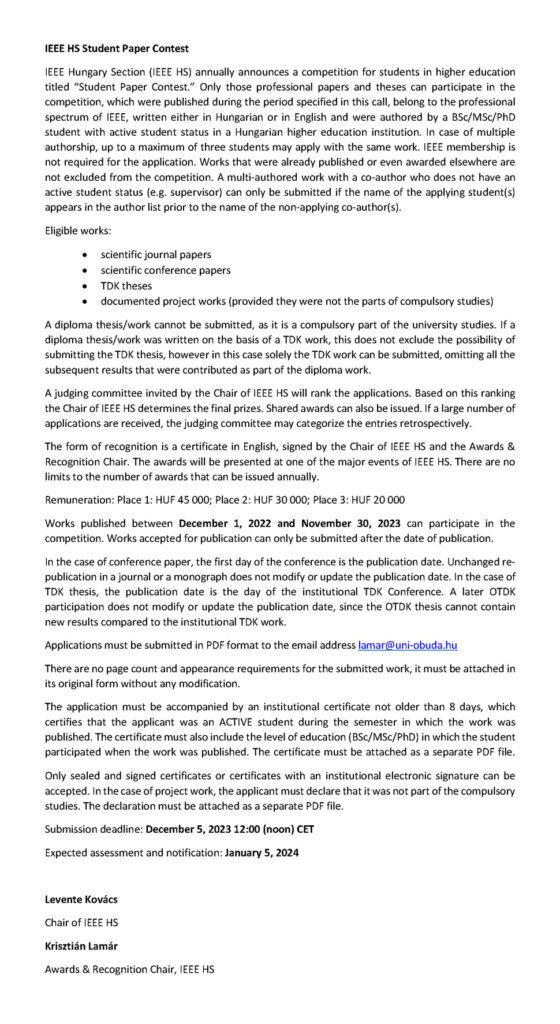Author: s4nyi
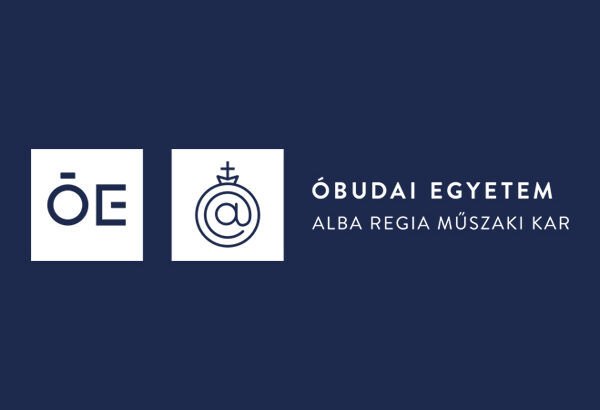
IEEE HS Student Paper Contest
IEEE Hungary Section (IEEE HS) annually announces a competition for students in higher education titled “Student Paper Contest.” Only those professional papers and theses can participate in the competition, which were published during the period specified in this call, belong to the professional spectrum of IEEE, written either in Hungarian or in English and were authored by a BSc/MSc/PhD student with active student status in a Hungarian higher education institution. In case of multiple authorship, up to a maximum of three students may apply with the same work. IEEE membership is not required for the application. Works that were already published or even awarded elsewhere are not excluded from the competition. A multi-authored work with a co-author who does not have an active student status (e.g. supervisor) can only be submitted if the name of the applying student(s) appears in the author list prior to the name of the non-applying co-author(s).

Collaboration in the cloud
COLLABORATION IN THE CLOUD: THE VIRTUAL KYNDRYL INDUSTRIAL DEPARTMENT IS ESTABLISHED AT THE ÓBUDA UNIVERSITY
Óbuda University and Kyndryl Hungary – Kyndryl Customer Innovation Center today signed an agreement to establish the Kyndryl Industrial Department at the Alba Regia Technical Faculty in Székesfehérvár, which focuses on teaching cloud technologies and related fields to prepare students for the workplaces of the future.
Through the virtual department, Kyndryl holds courses in the field of cloud technology with its own staff and participates in the teaching of high-level mathematics. With the involvement of students in Budapest, students can access the courses from the entire university area, even from remote locations, and develop their skills and knowledge in the modern IT areas where Kyndryl has expertise.
Both the company and the university place a high priority on education in cloud technologies, as more and more companies and institutions move their IT applications to the cloud. Moving to the cloud is a complex process that requires service providers with extensive knowledge. Kyndryl is one of them, which represents a huge opportunity for both the company and the employees. Kyndryl’s customer innovation center in Székesfehérvár was founded in 1997 and today employs more than 3,000 professionals who support their customers in all segments of industries in the design, construction, management and modernization of their mission-critical technology systems.
Kyndryl and the Alba Regia Technical Faculty of the Óbuda University continue to develop and expand the cooperation by creating additional curricula, starting new courses in areas offering different research topics and participating in examination committees. Kyndryl is already one of the university’s largest dual training partners, having welcomed 57 dual students since 2016. Of these, 16 students joined Kyndryl in September 2022.
Prof. Dr. Levente Kovács, the rector of Óbuda University, said that graduates from higher education with up-to-date knowledge that can be used well in practice, and who are receptive to changes, have a special role in strengthening the domestic economy. The Óbuda University has always placed a great deal of emphasis on developing its industrial relations so that during the training, students can deepen not only their theoretical but also their practical skills. Almost all areas of technical and economic life are covered by our dual system, which we are consistently increasing. The best practice is demonstrated by the Alba Regia Technical Faculty in Székesfehérvár, where local companies are currently contributing to the costs of the studies of 161 students, ensuring that they get to know the operation of a plant and the coordination of production processes even as university students.
Zoltán Zerényi, Director of the Kyndryl Customer Innovation Center, EMEA, emphasized that Kyndryl is constantly looking for and developing the next generation of talents before they enter the labor market, working closely with educational institutions for joint success: the professional fulfillment of the best students, the reduction of technological skills shortages and for the company’s prosperity.
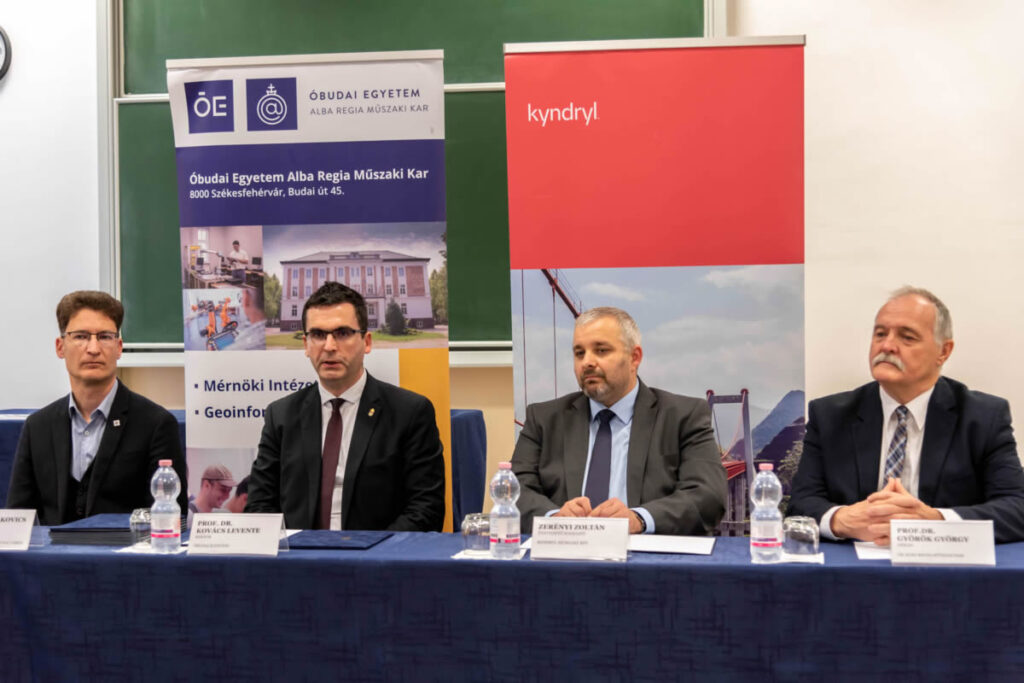
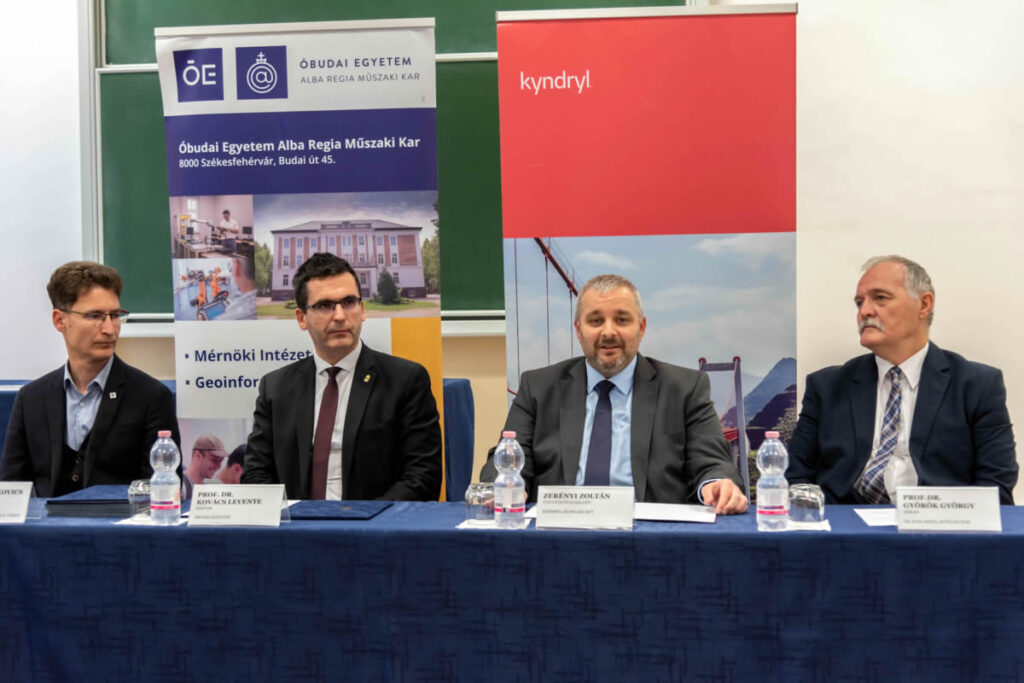
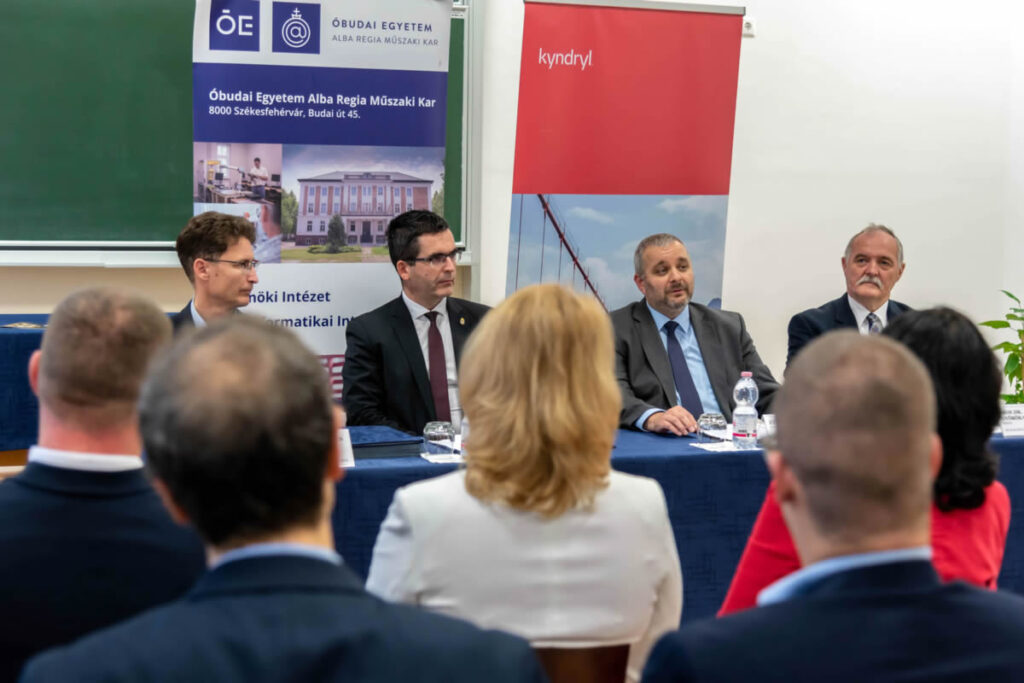
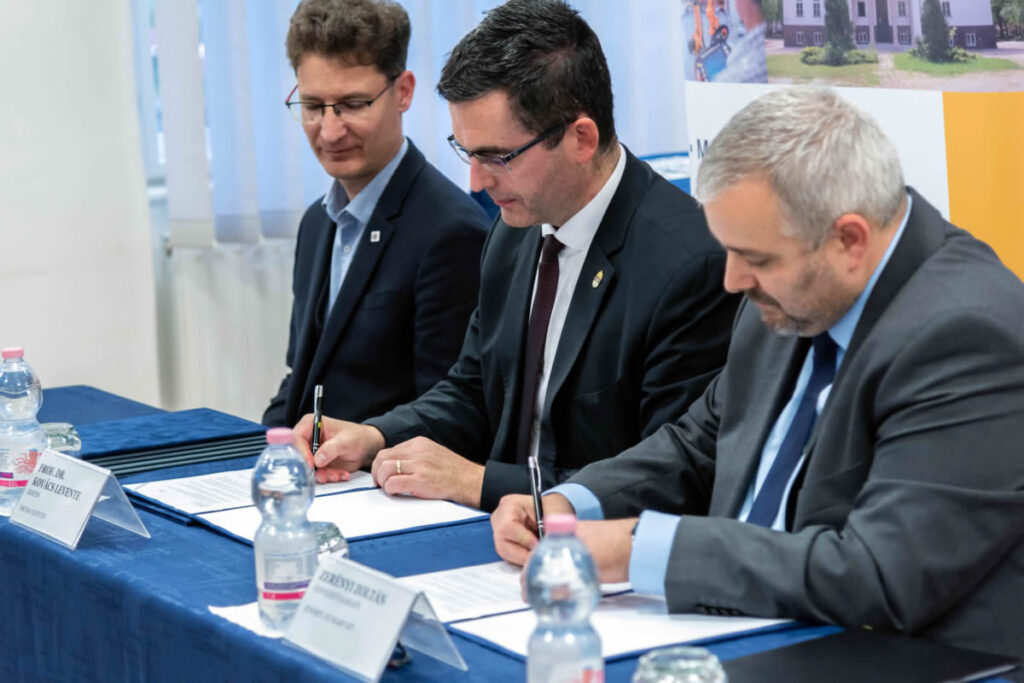
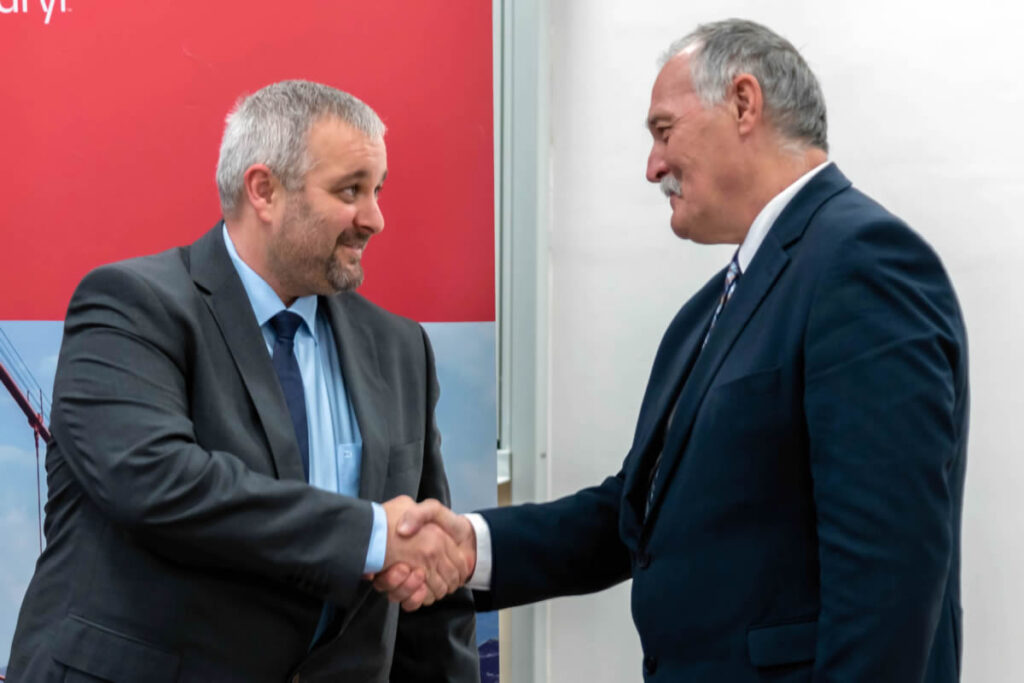
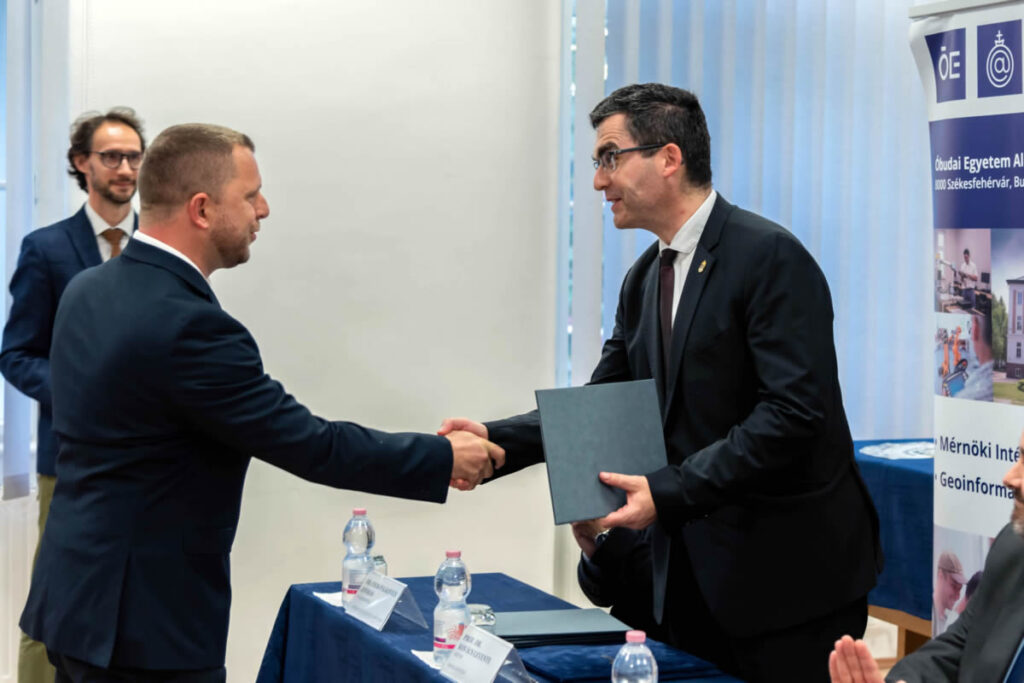
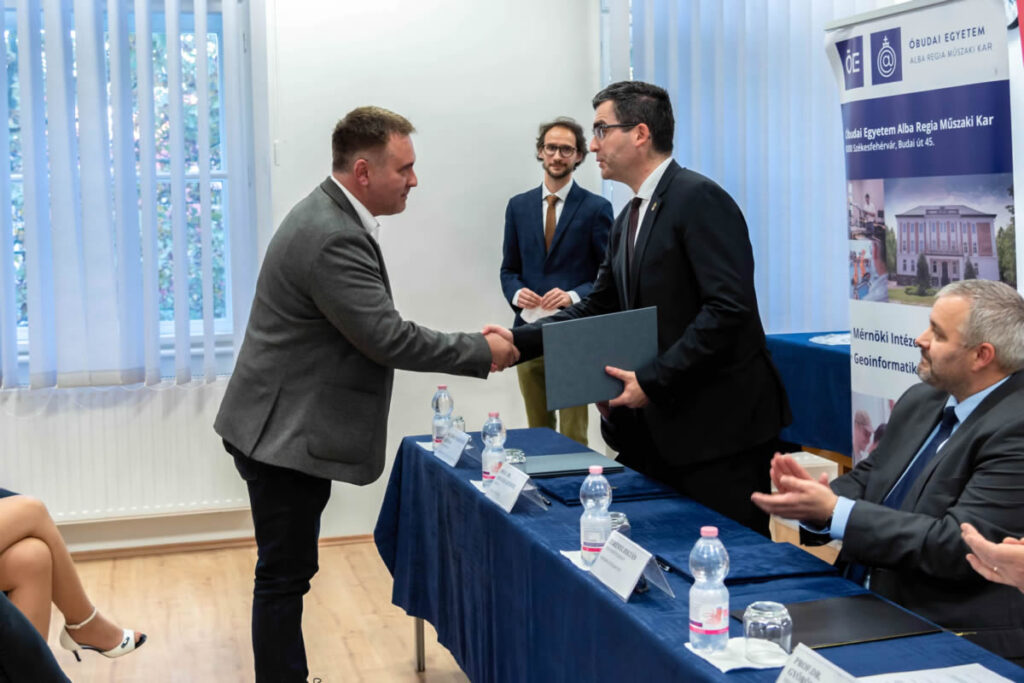
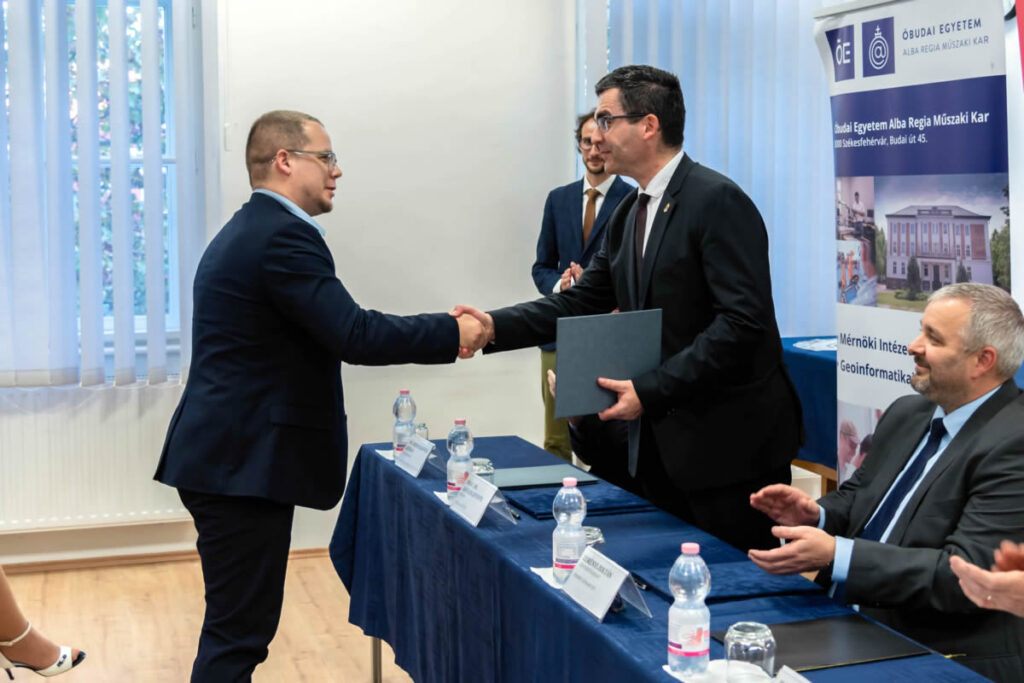
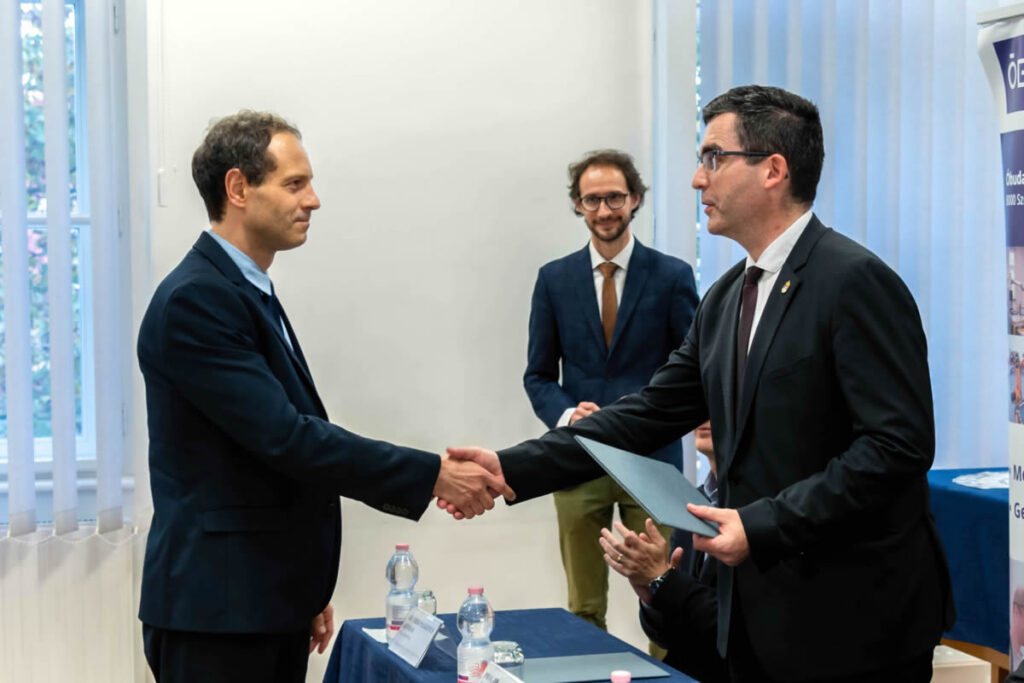
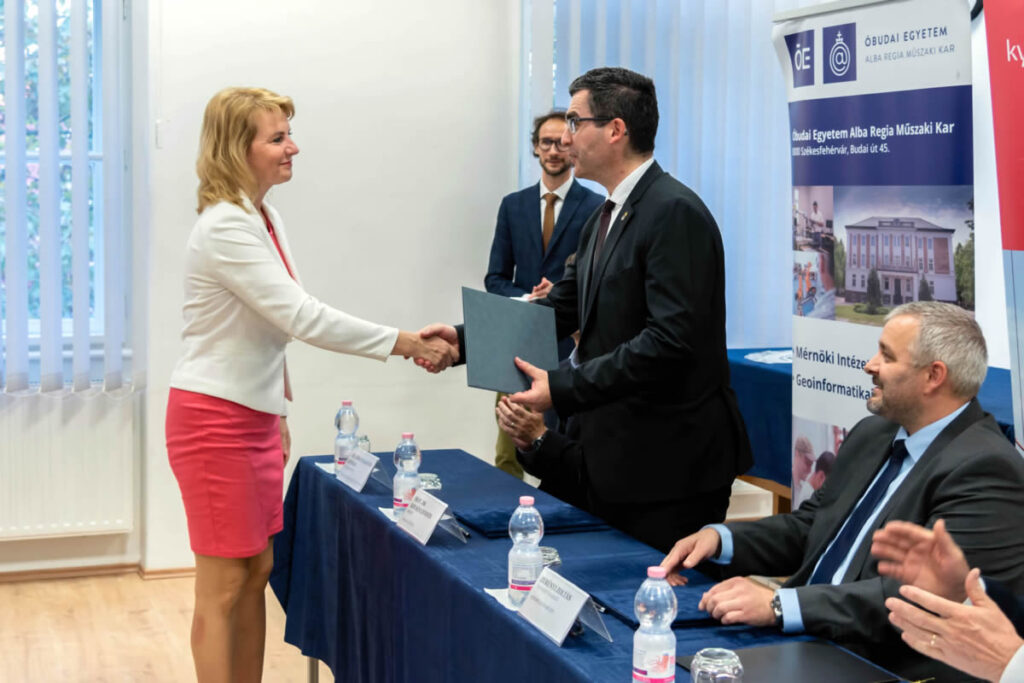
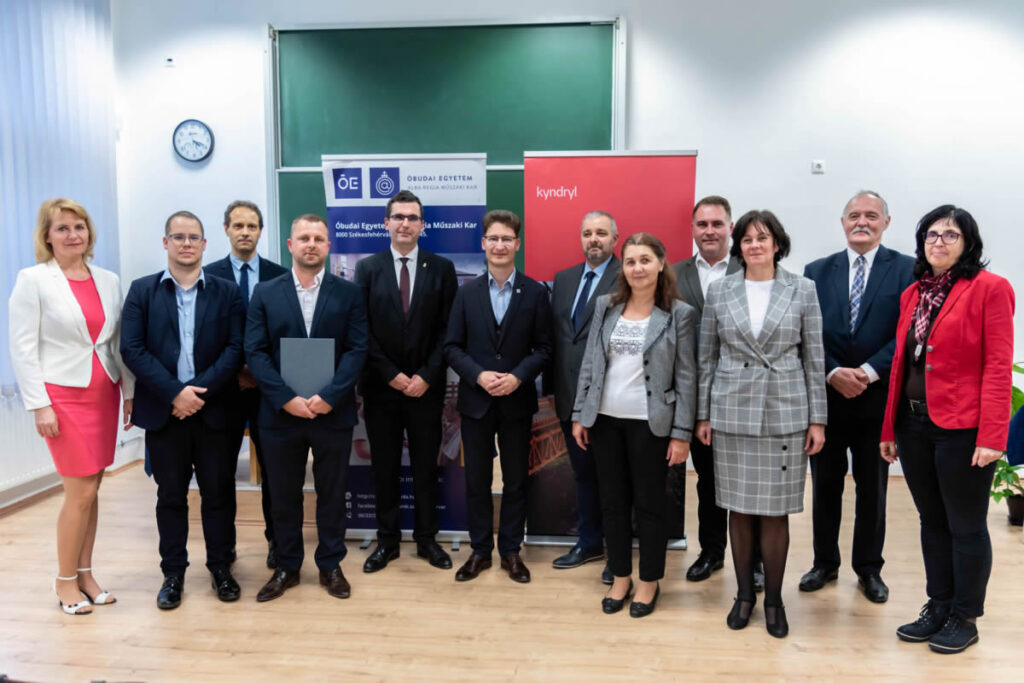
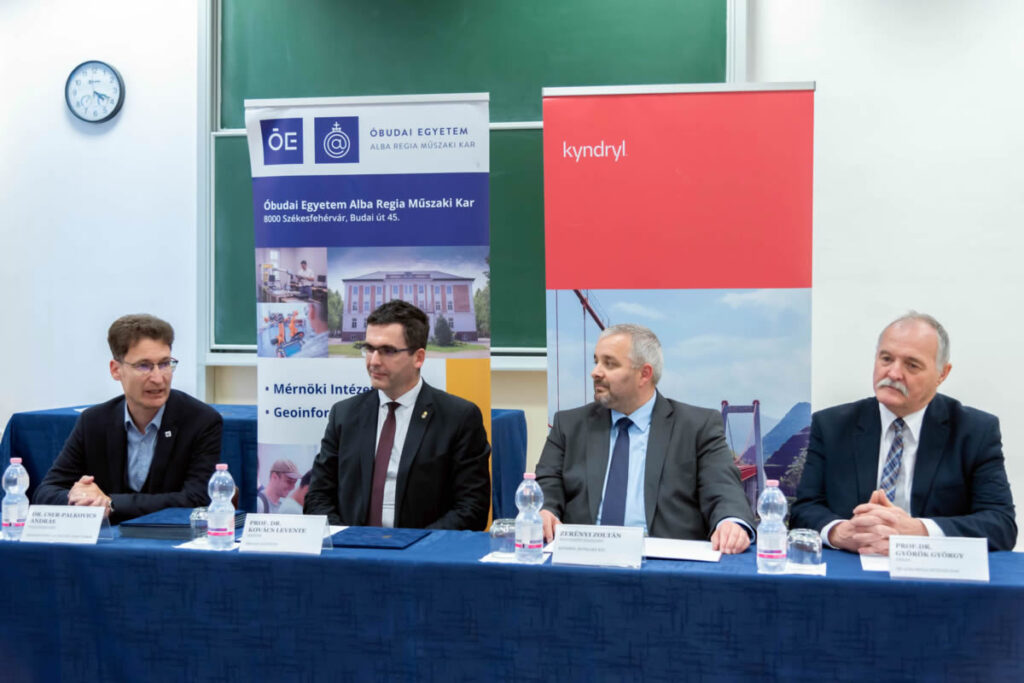
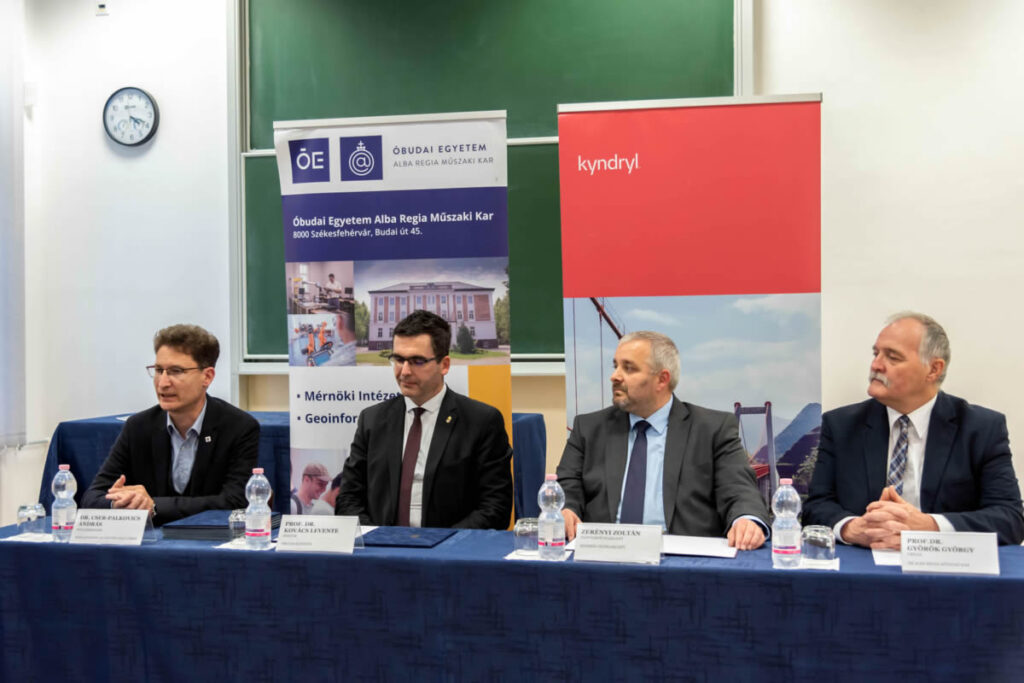
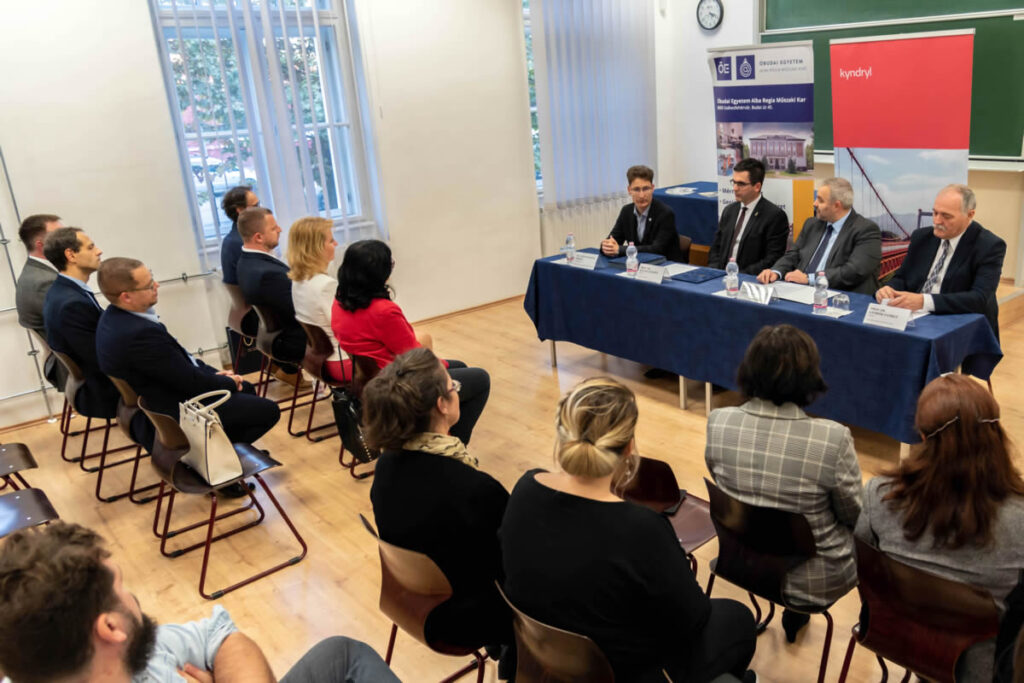
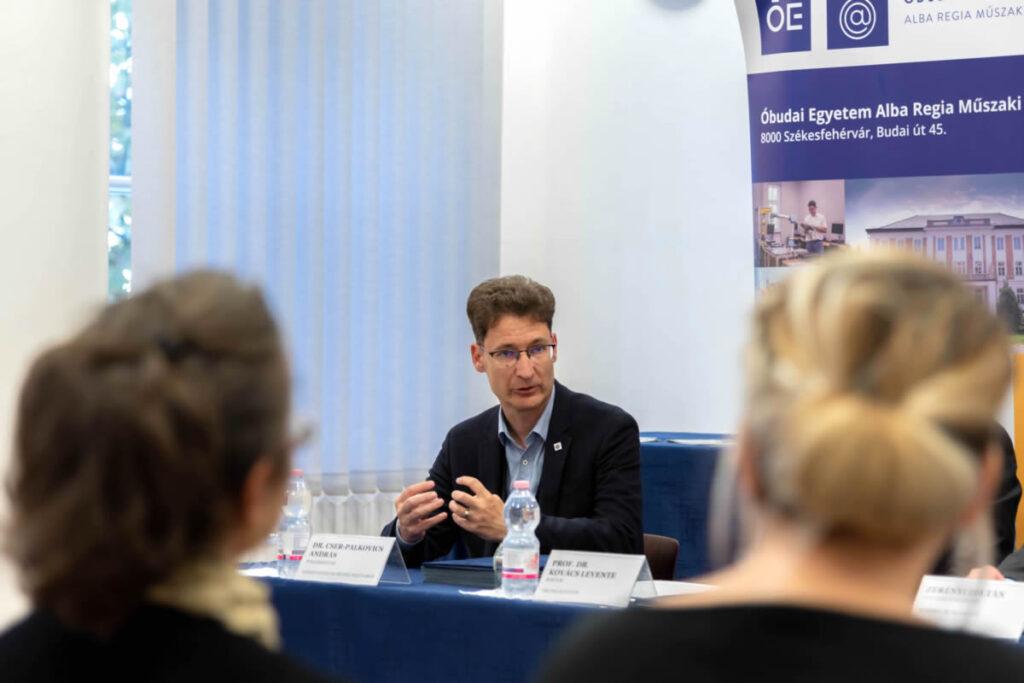
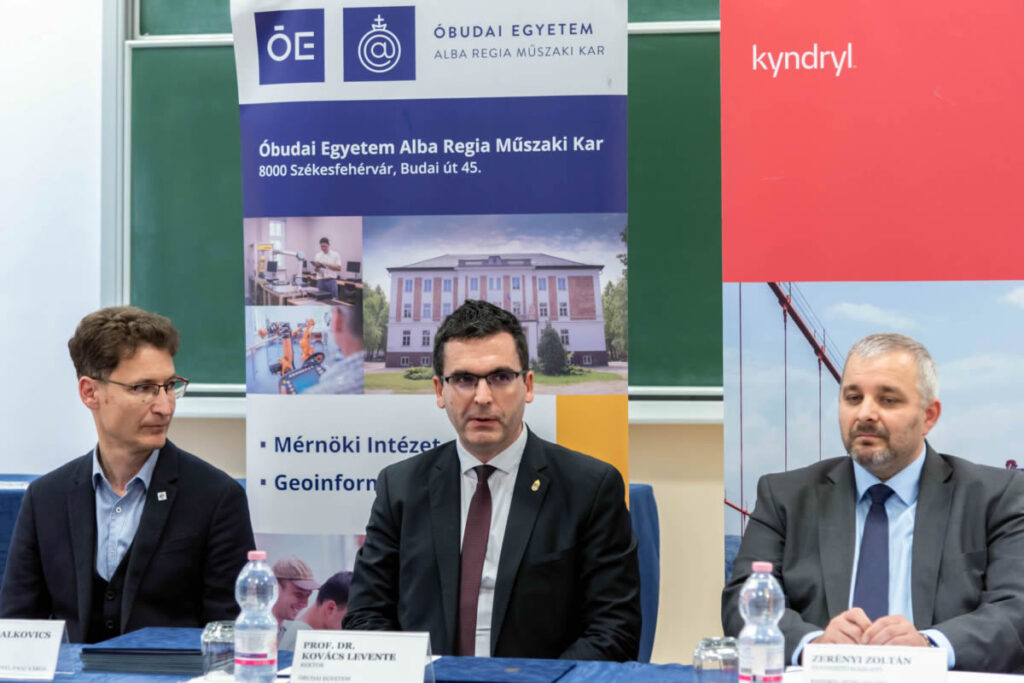
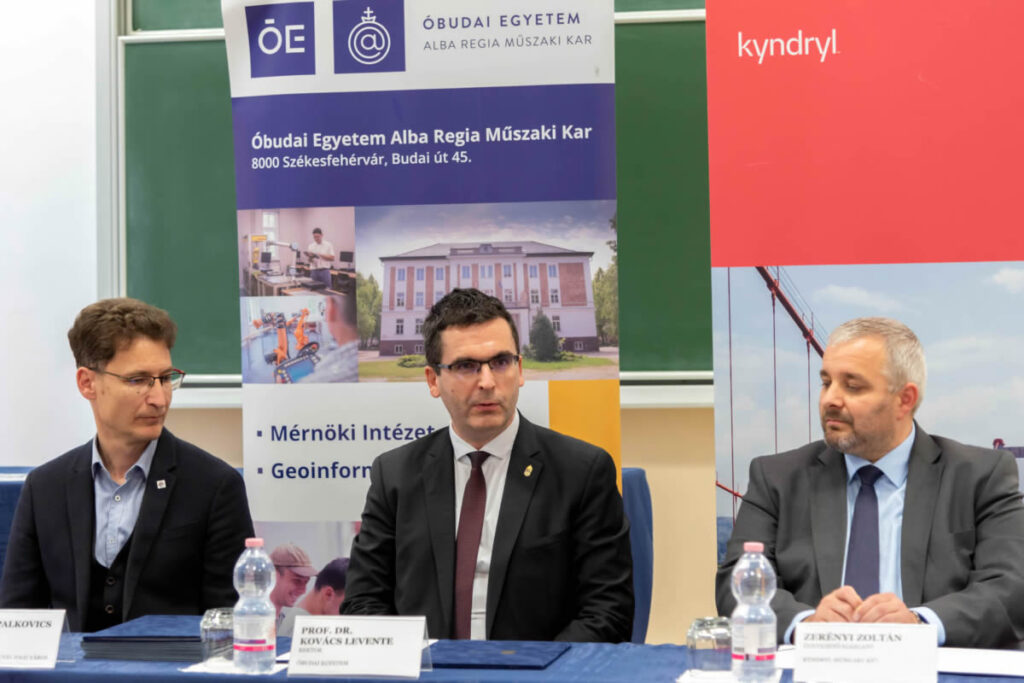

Modeling robot processes in higher education
Howmet-Köfém Kft (and its predecessor institutions) and the Alba Regia Technical Faculty of Óbuda University have been working together for the seventh year now in various research and educational projects. During a press conference on Monday, the almost HUF 8 million grant was handed over, which will be used, among other things, for the development of the robotics center and the pneumatic laboratory. On the program, Dr. András Cser-Palkovics, the mayor of Székesfehérvár, gave a welcome address, István Katus, the managing director of Howmet-Köfém kft., and Prof. Dr. Györök György, the dean of the Alba Regia Technical Faculty of the Óbuda University presented the priorities of the cooperation from the perspective of their organizations.
In the project called “Robot Process Modeling in Higher Education”, the aim was to supplement and modernize the laboratory and educational materials by creating an industrial production line to model the processes of intelligent manufacturing. Industrial processes appear in BSc, MSc and postgraduate level education, thus bringing the students’ practical knowledge closer to the needs represented by the company. During the project, new laboratory equipment was installed, and a new curriculum was developed. For this, the instructors also had to learn about the industrial application possibilities of the new hardware in order to develop curriculum that meets industrial needs.
Dr. András Cser-Palkovics, the mayor of Székesfehérvár, welcomed the participants and noted that despite a challenging period, he sees that strategic collaborations can be filled with new content. He emphasized that “the current support is also about the fact that the cooperation between Howmet-Köfém and the Óbuda University has not only a past, but also a present and a future, and the goal is to increase students’ opportunities and to convey the message to young people that it makes sense for them to stay at home or come to Fehérvár from somewhere else, because this city can give them a good professional and existential vision for the future in terms of its university and industry.” He emphasized that the Óbuda University has achieved a prominent place in the international ranking of universities, to which more and more people apply every year. He noted that the Alba Regia Technical Faculty of the Óbuda University has also undergone serious development in recent years, with an increase in the infrastructure and the number of students, which is a very important factor for the city’s industry. At the end of his greeting, he thanked Howmet-Köfém for its many years of partnership, which is embodied year after year either in the dual training or in the professional programs.
In his speech, István Katus, the managing director of Howmet-Köfém Kft., noted that they were among the first companies in Székesfehérvár who felt it important to get involved in the support of university education as a local business organization. He pointed out that this is now in its seventh year, and they are close to HUF 150 million, and according to their plans, they want to support the university faculty for many years to come. The aim of the industrial companies, including Howmet, is to finance these projects and help them graduate from the university with engineers who can be employed immediately. He said that there are currently dual students at the company who are being supported in their professional development so that they can accumulate as much practical knowledge as possible, which can be useful either at them or at another company. The executive director asked the university faculty to approach the company next year with a project idea that they can support through the foundation.
Prof. György Györök, dean of the Alba Regia Technical Faculty of the Óbuda University, commented, “the company’s attitude towards us is incredibly good.” The support of technical higher education contributes to the expansion of the tool base and the instrument park. He noted that this excellent corporate attitude is also a great responsibility, as this should be treated as a good investment in order to help companies through education. He thanked us for the support received in the seventh year as well, which contributes to modernizing our higher education and training.
Associate professor Dr. Károly Széll summarized in a short presentation how usefully the university was able to use the support. Mechanical, IT, and electrical engineering students can get to know the technologies used by companies at the university, in the robotics centre, or in the pneumatic laboratory. He talked about how he managed to expand the lab with three teaching cells (with fanuc controllers), which can already be used to train 12 people with the industrial robotics engineer training. He talked about the first professional successes, that thanks to the knowledge gained in the robot laboratory, the students won last year’s FANUC Olympiad, as well as about the successful placement of students at the world competition in Luxembourg. Finally, he mentioned that on January 18, the university faculty will organize a workshop conference on industrial robotics.
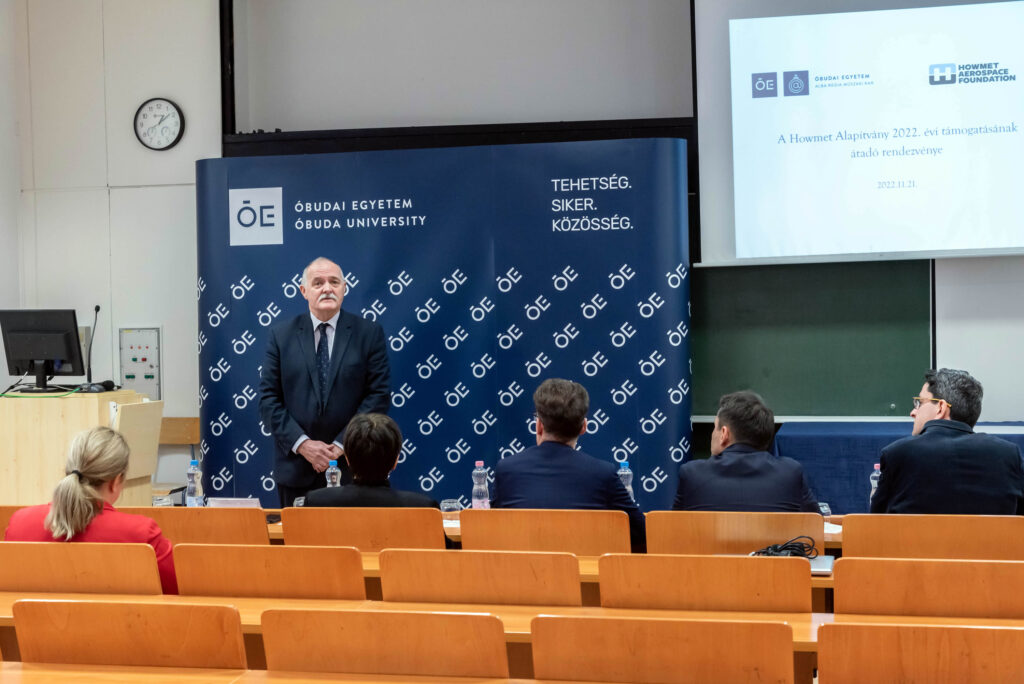
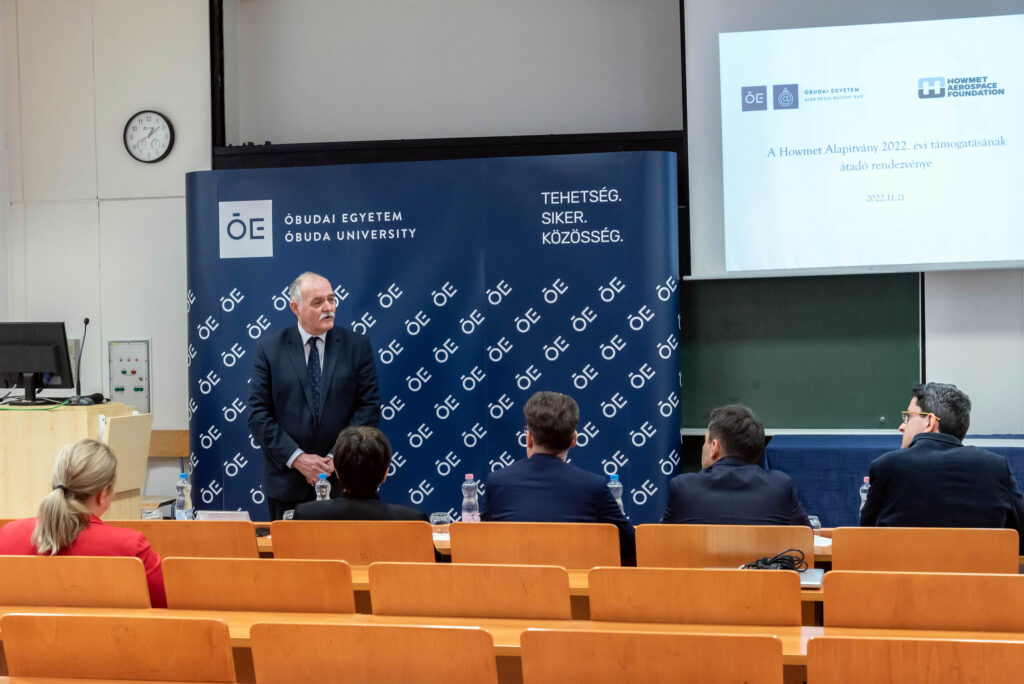
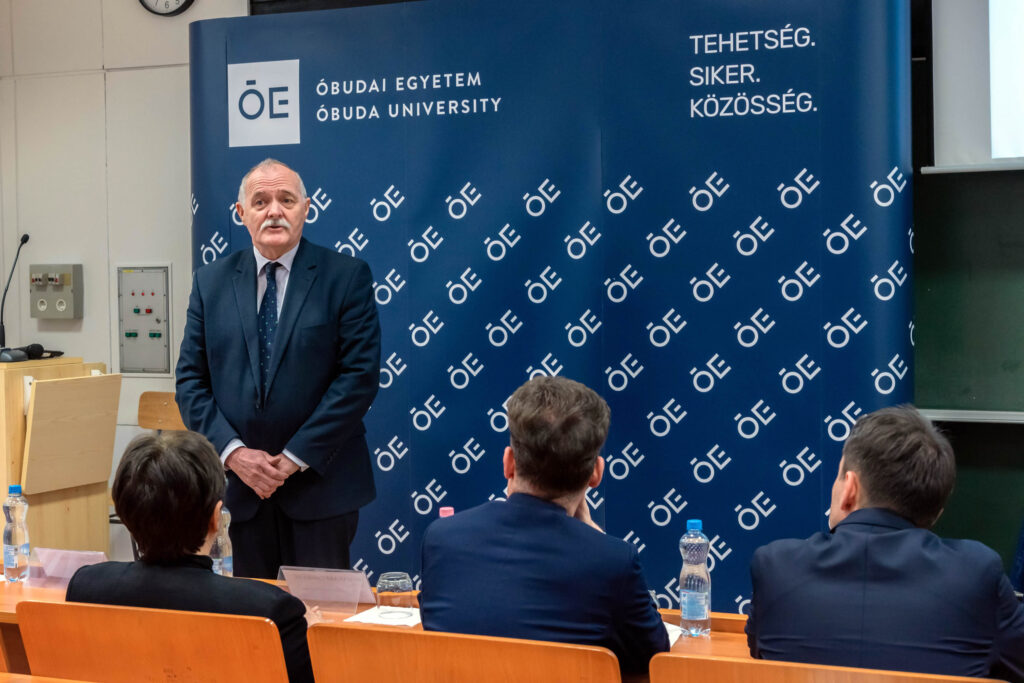
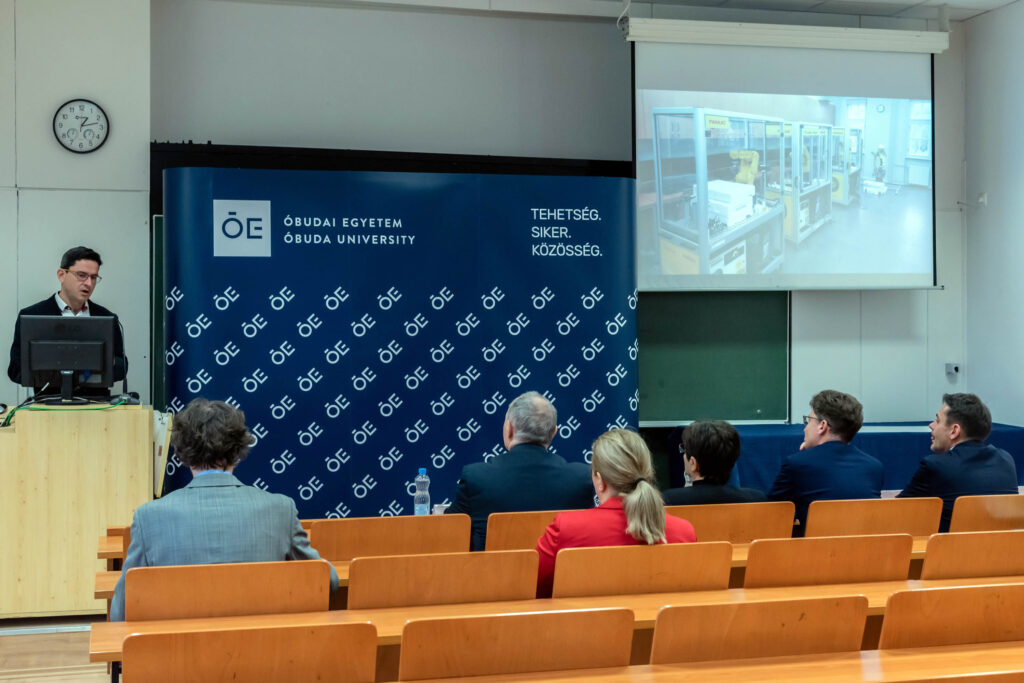
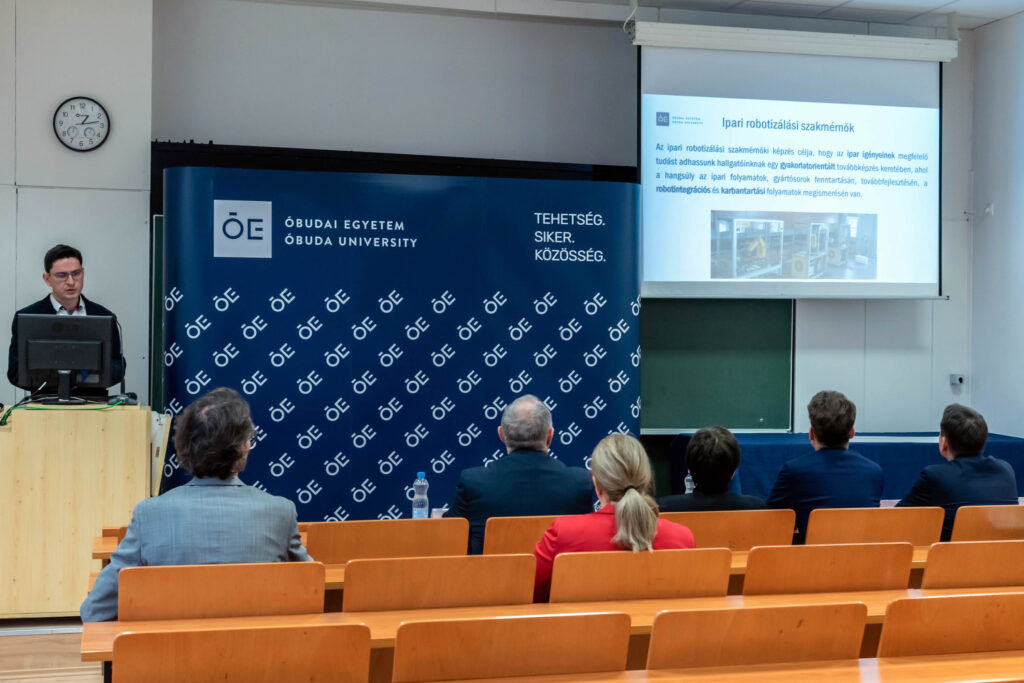
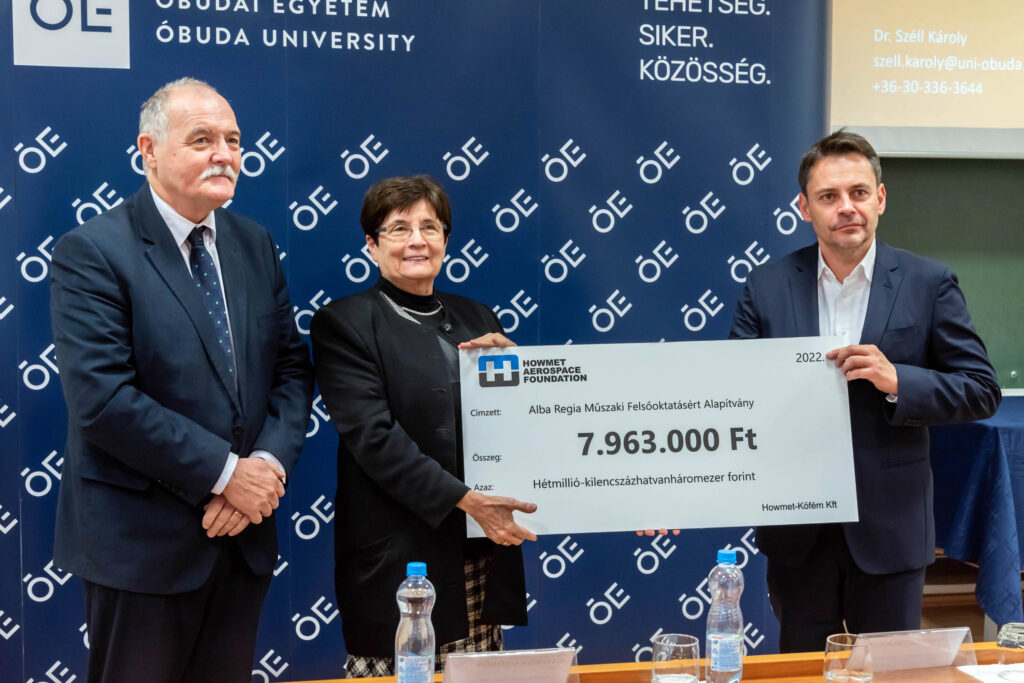
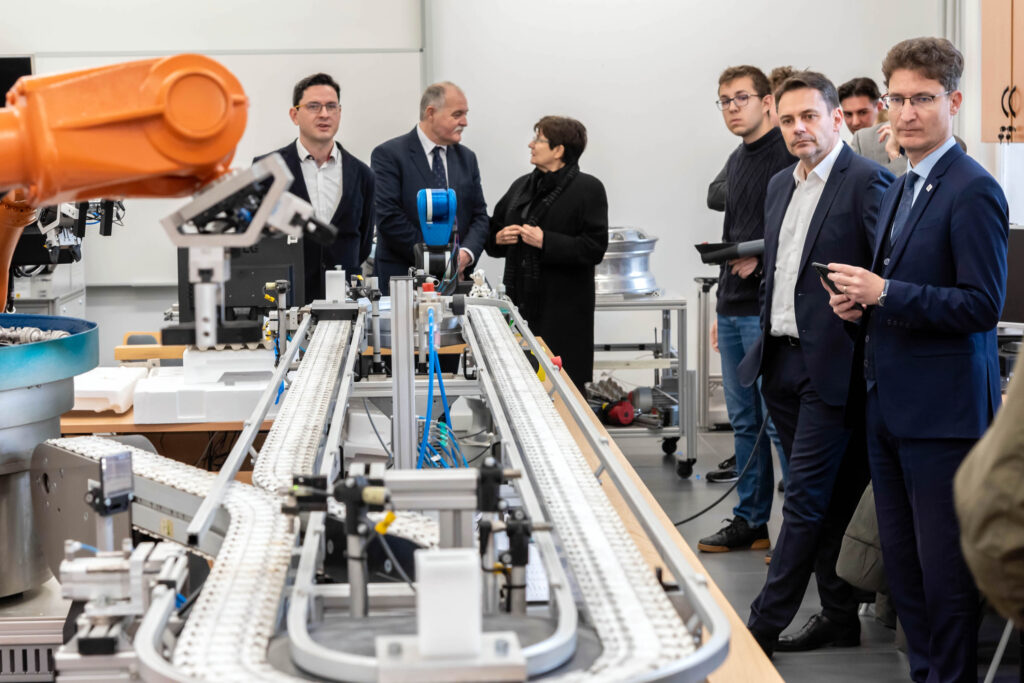
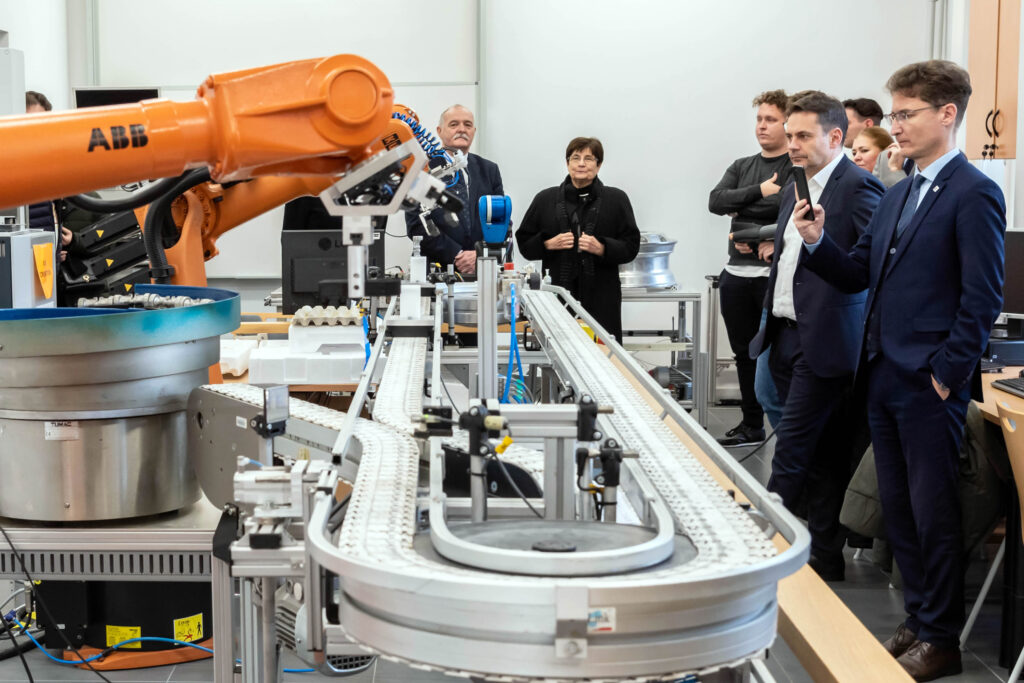
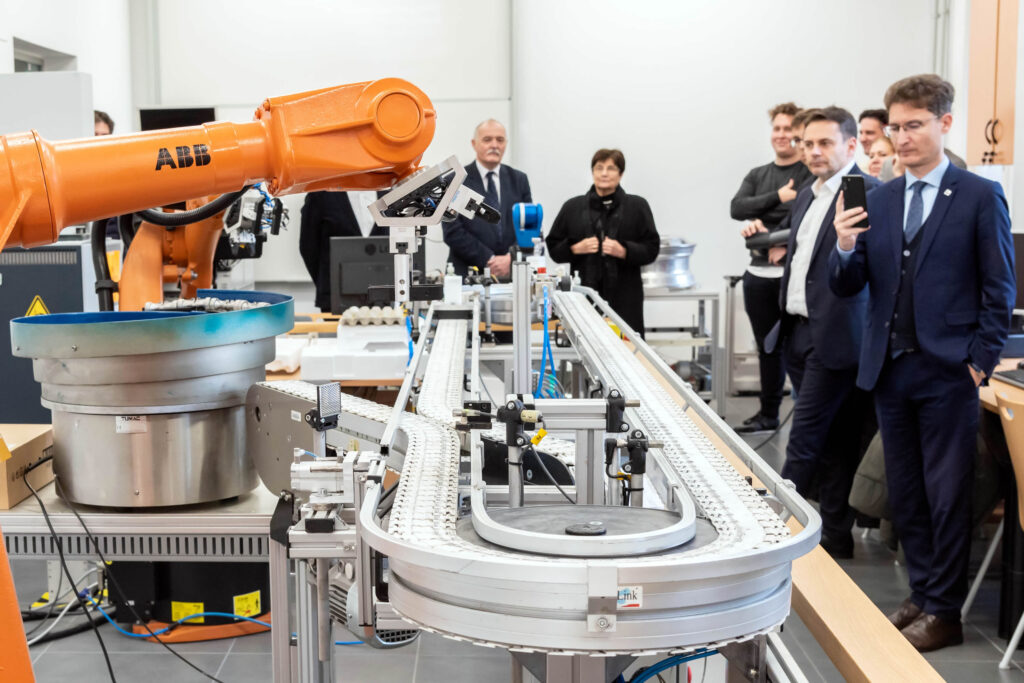
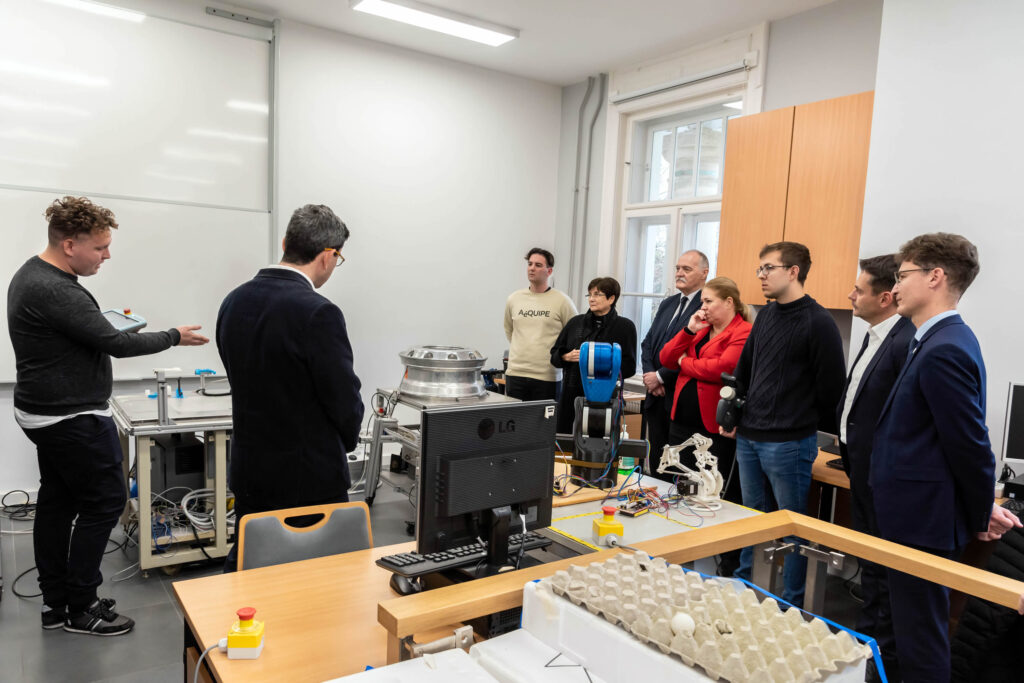
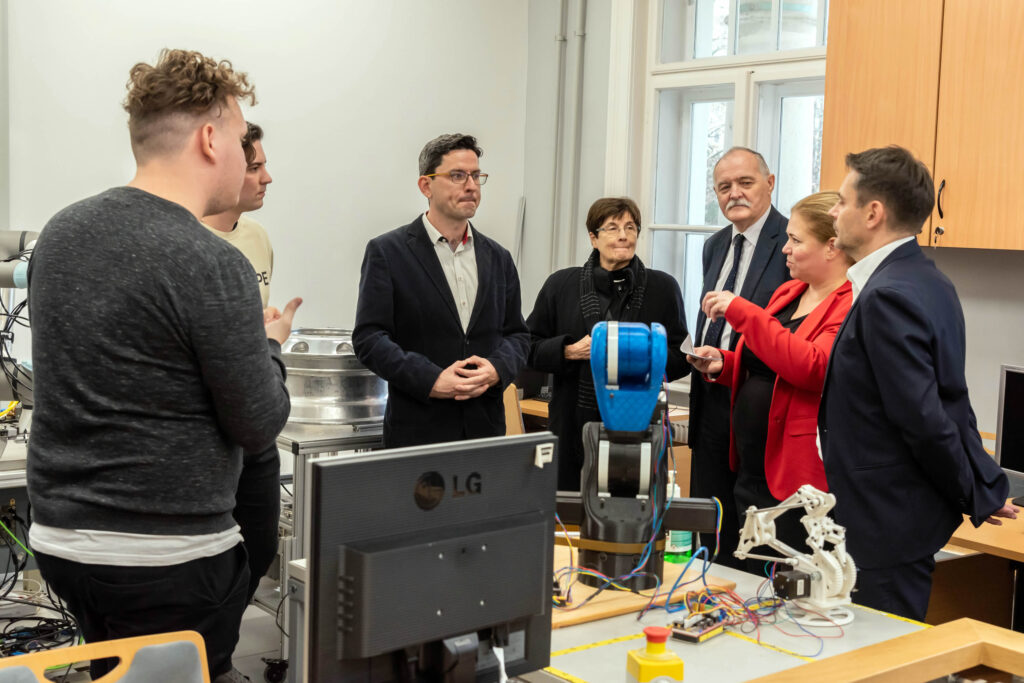
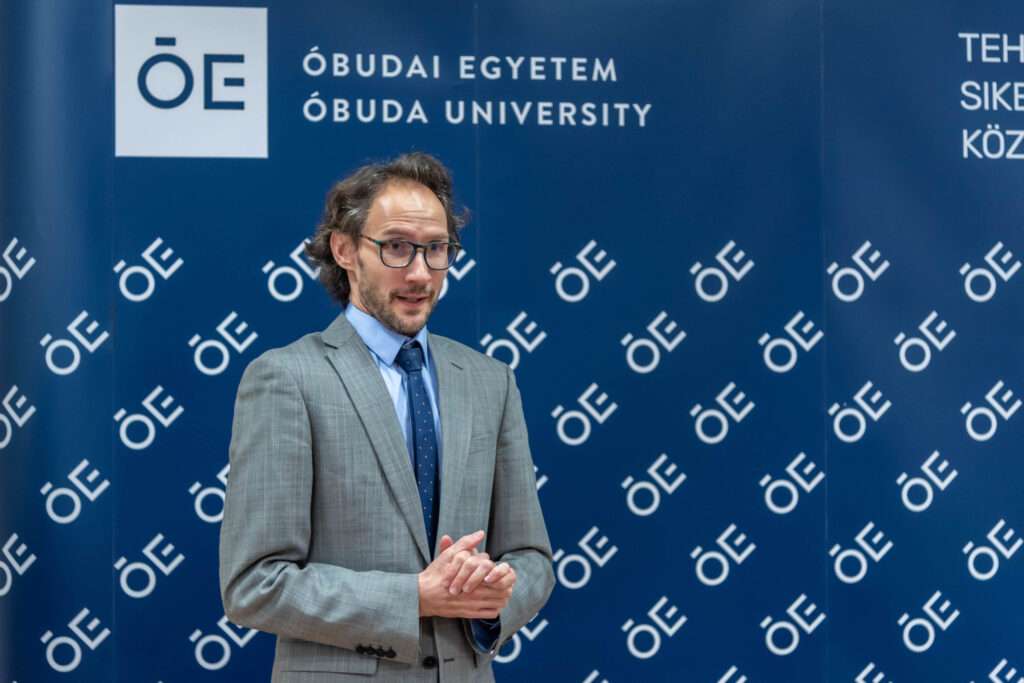
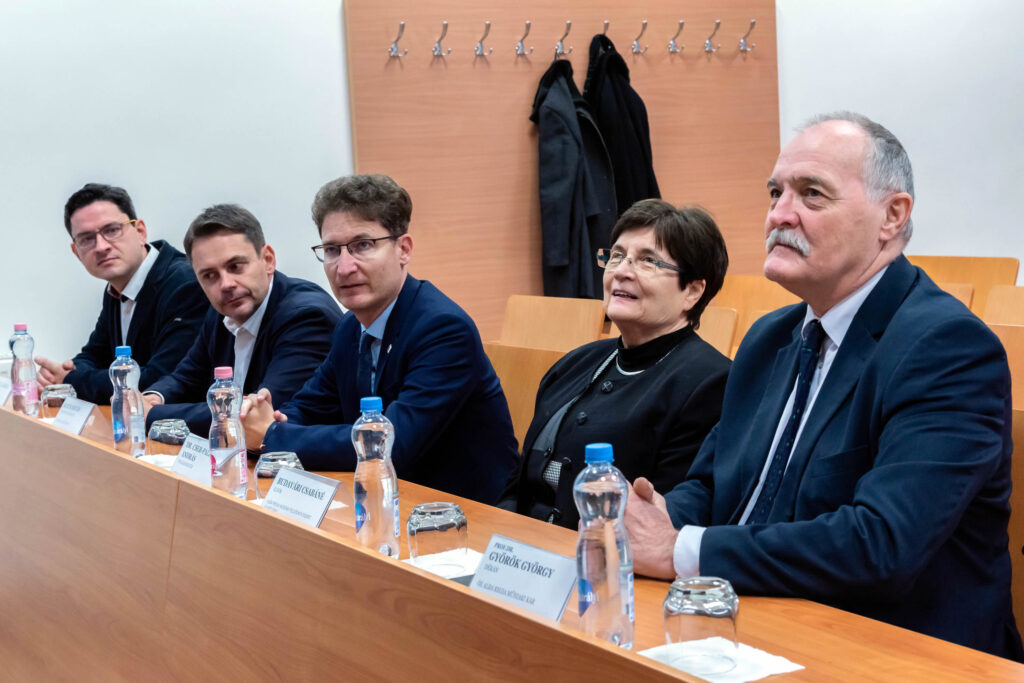
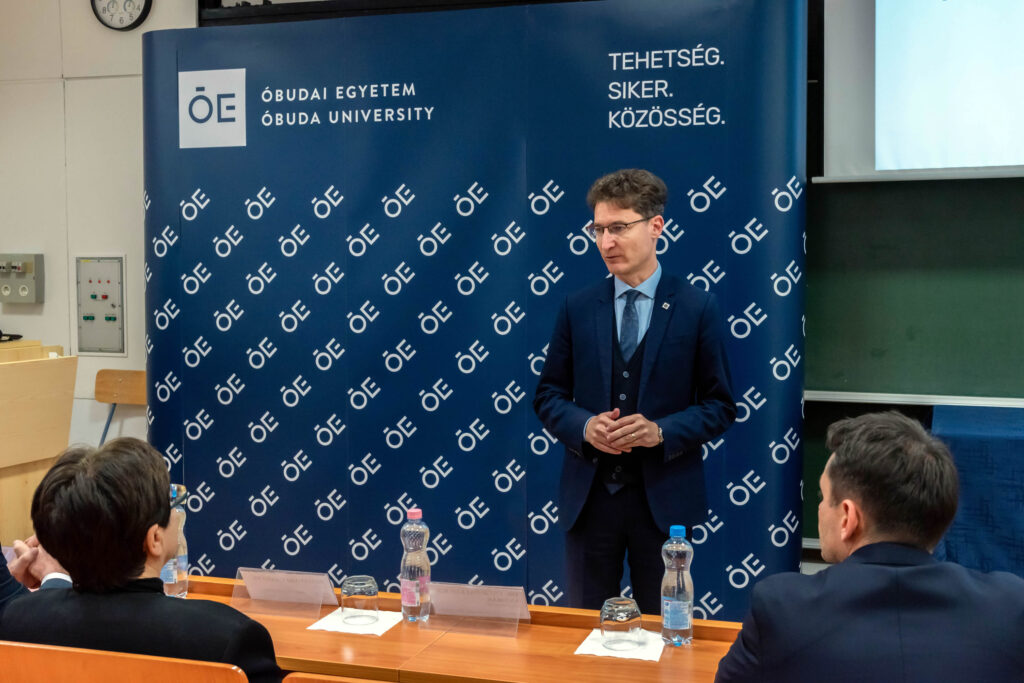
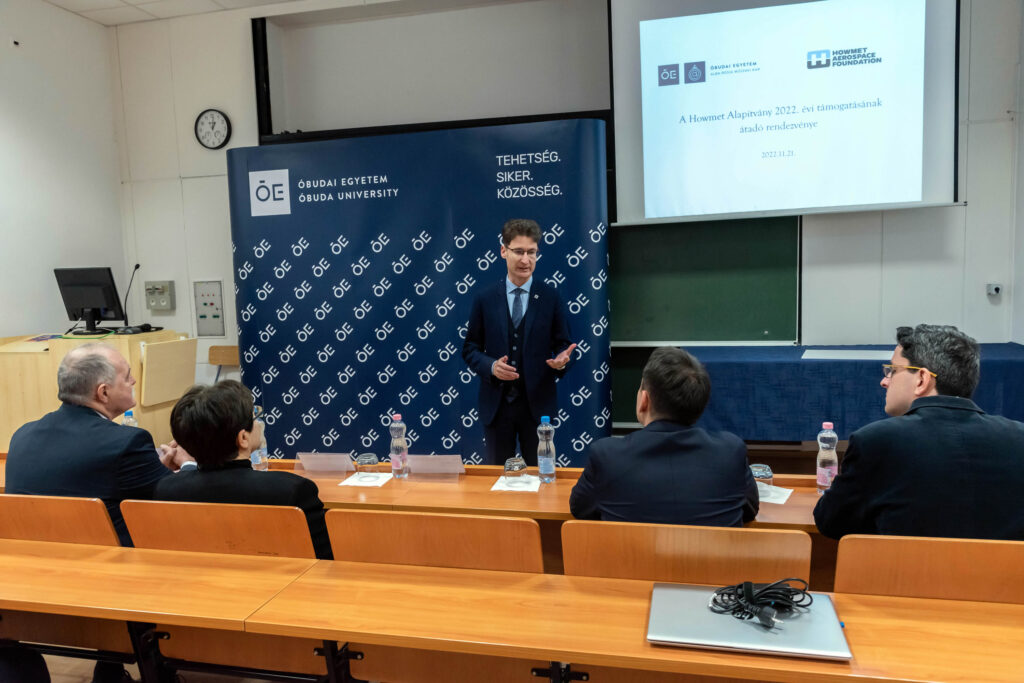
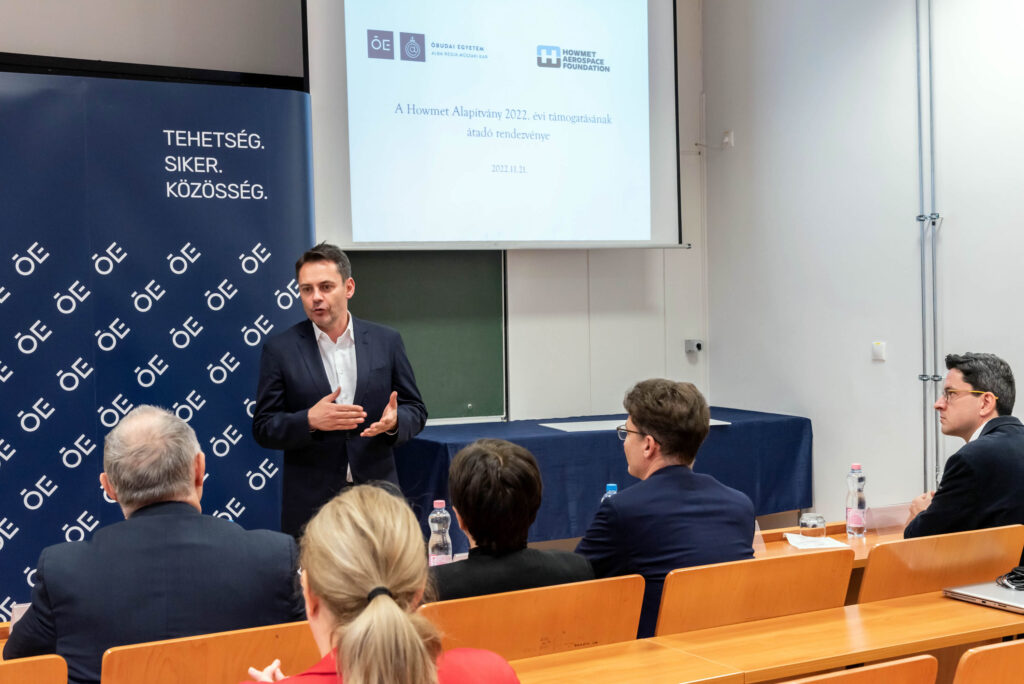
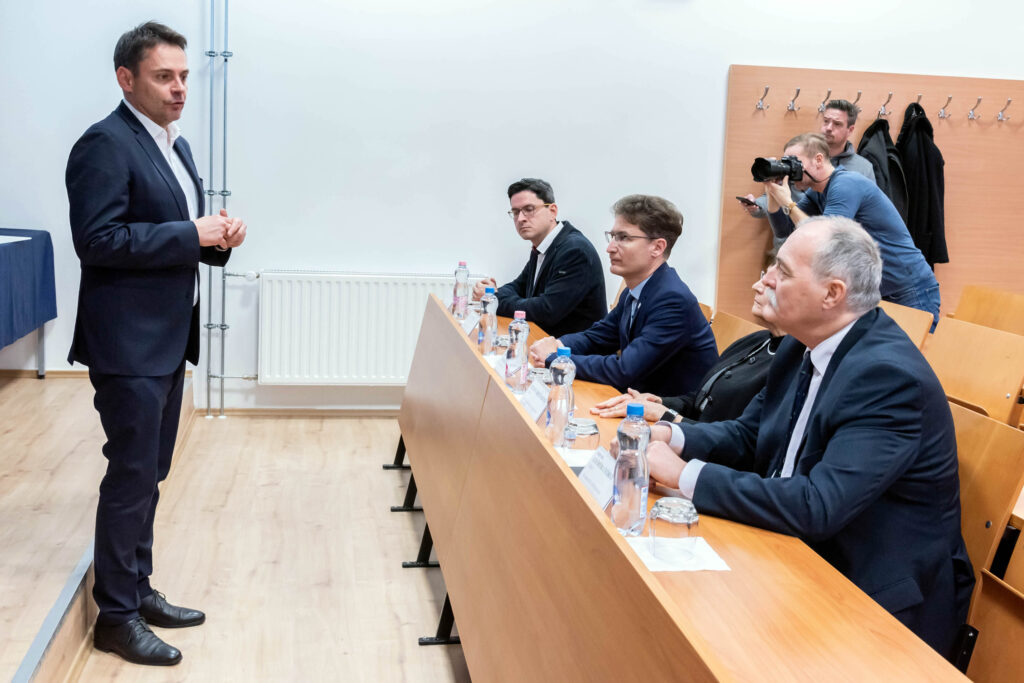
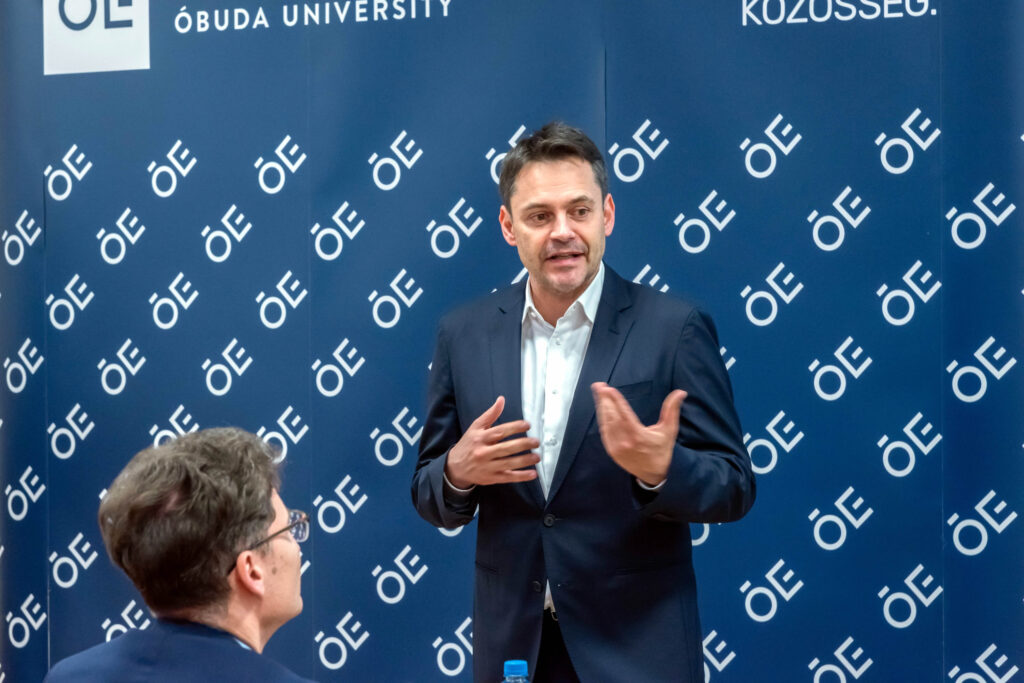

AIS 2022 Conference
On November 17, 2022 (Thursday), the opening ceremony of the AIS (International Symposium on Applied Informatics and Related Areas) conference, which is part of the Hungarian Science Festival program series, was organized by the Alba Regia Technical Faculty of Óbuda University. Deputy mayor Attila Mészáros gave a welcome speech, the event continued with the opening speech of Prof. Dr. György Györök, dean of the Alba Regia Technical Faculty, and associate professor Dr. József Halász held the role of chairman of the plenary sessions.
In accordance with tradition, the scientific symposium launched in 2005 as a kind of multidisciplinary forum presented diverse topics on the achievements in the field of technical research and education.
At the opening ceremony held on the university campus, deputy mayor Attila Mészáros welcomed the participants of the symposium on behalf of the city and thanked the organizing committee for the work of the conference. He emphasized that, nowadays, ÓE has achieved a place of excellence in many international rankings, ahead of its competitors, to which the Székesfehérvár university faculty also contributed. He emphasized that the educational work and the research work carried out in technical higher education institutions are important for the city and its economy, the results of which are equally needed by industry. He drew attention to the role of research and development. The city supports these efforts, which is a catalyst for further development. Finally, he wished the participants a good meeting.
Prof. Dr. György Györök, the dean of the Alba Regia Technical Faculty of Óbuda University, welcomed the attendees, wished the participants good presentations, good questions, and high-spirited conversation and opened the conference. He drew attention to the translucent concrete developed by Áron Losonczi in 2002, which he mentioned as a symbol of the openness and diversity of the conference, as well as the open, transparent walls of the university, which welcomes those interested in scientific research with open arms. He emphasized that “what we do within the walls of the university in the name of science has its place and time.” He thanked the organizing committee for the work done to organize the seventeenth conference, wished everyone an open mind and building of good relations.
Associate professor Gábor Péter Molnár started the plenary lectures of the symposium with the title “How American Spy Satellite Images from 1960 Helped Us in the Changing World Environment”, followed by academician Gyula Simon with the title “Robust Localization Methods Using Voting Algorithms”.
More information about the conference: http://ais.amk.uni-obuda.hu/
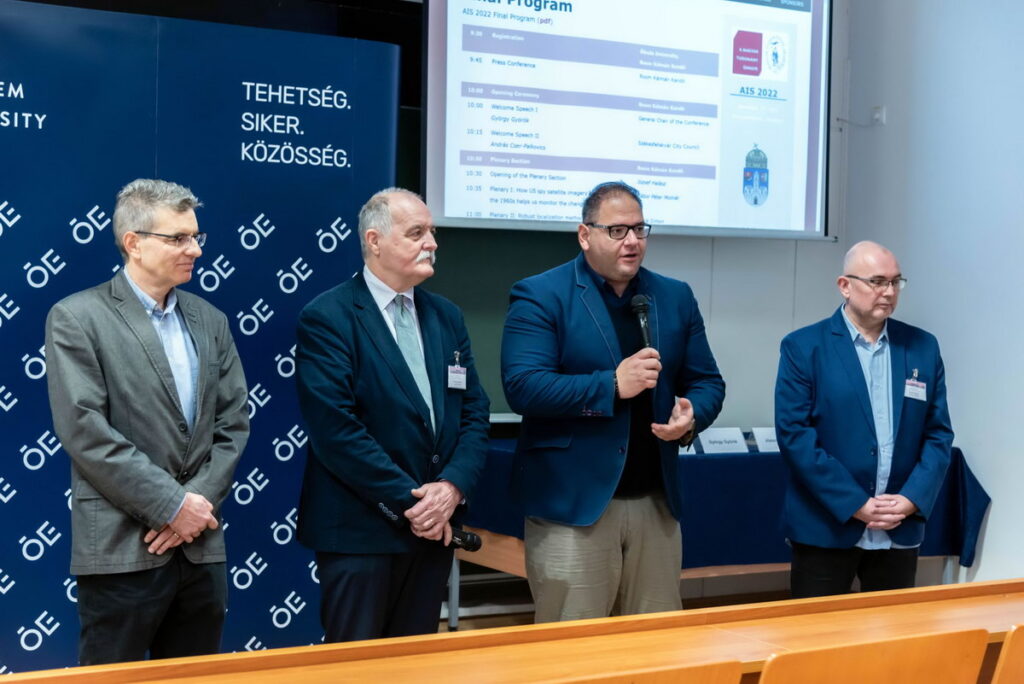
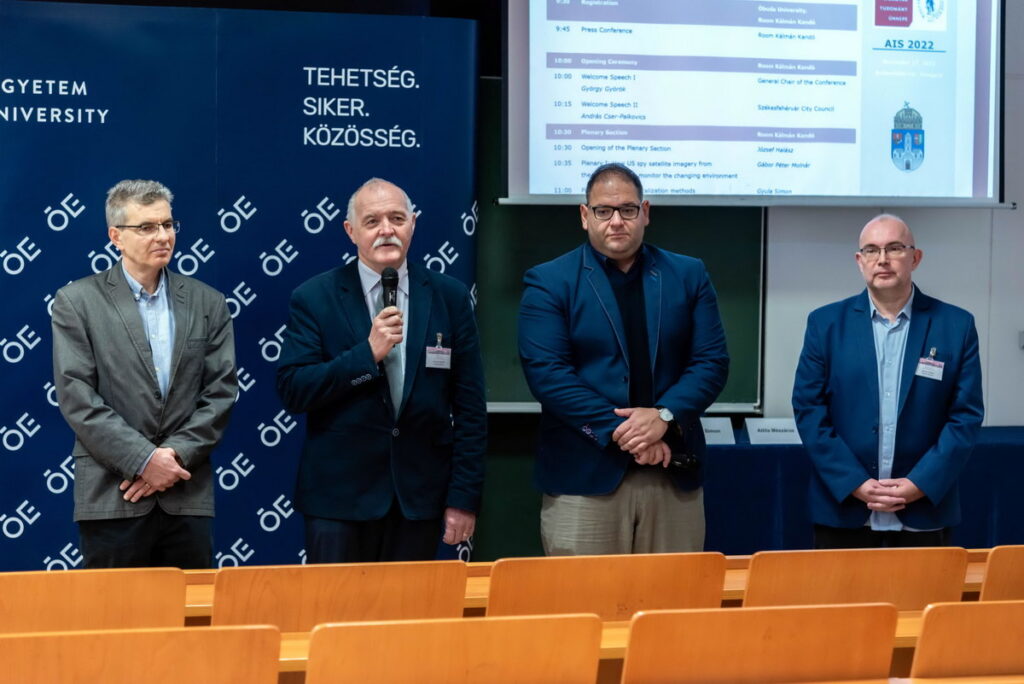
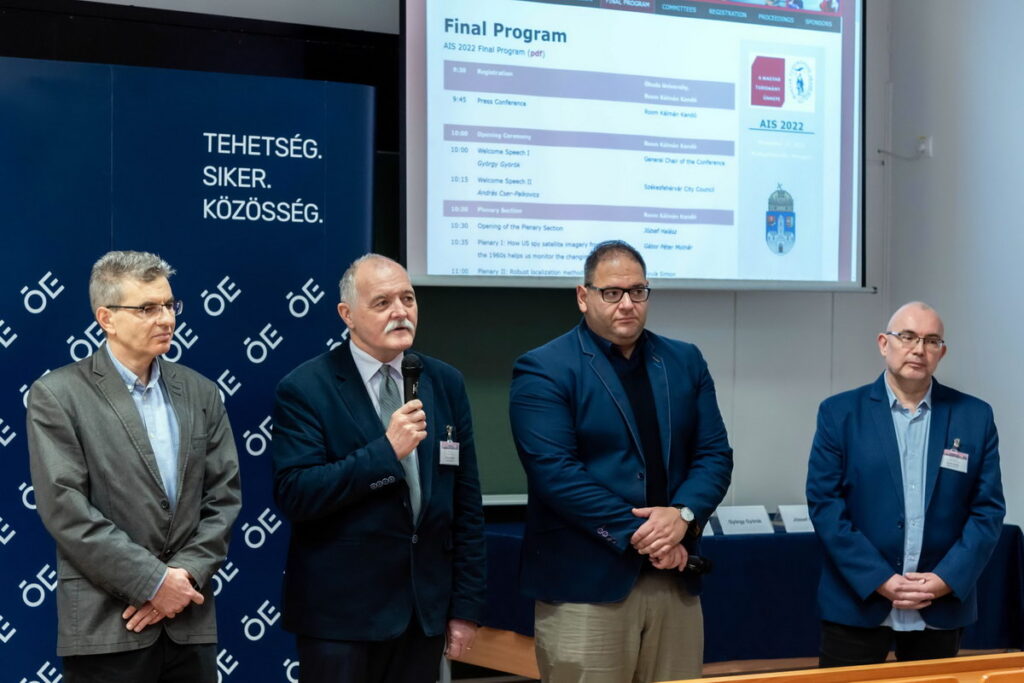
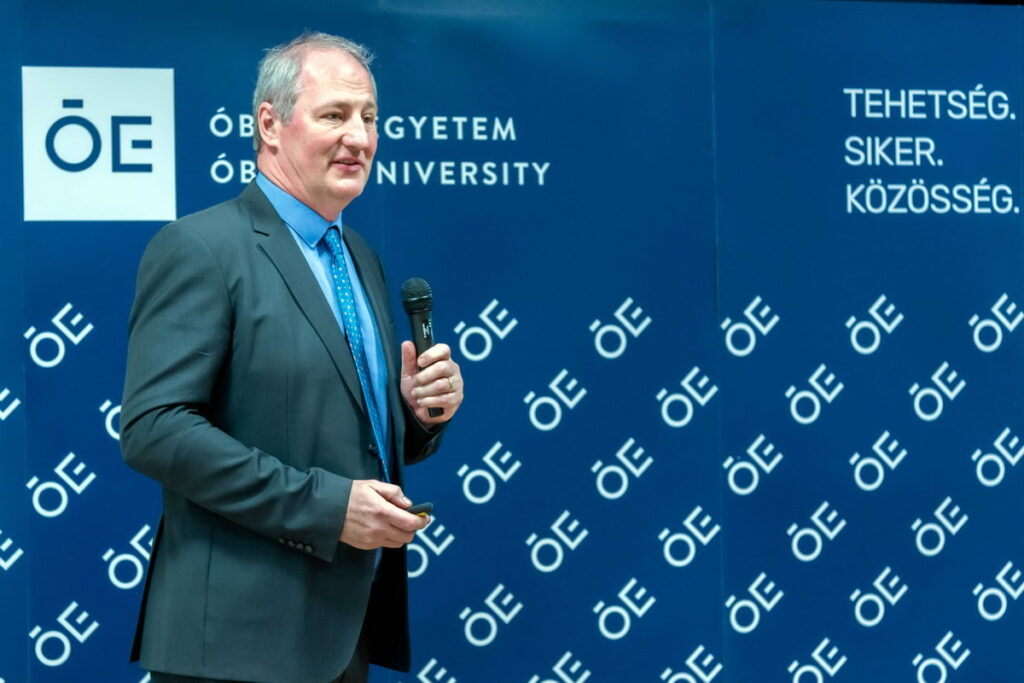
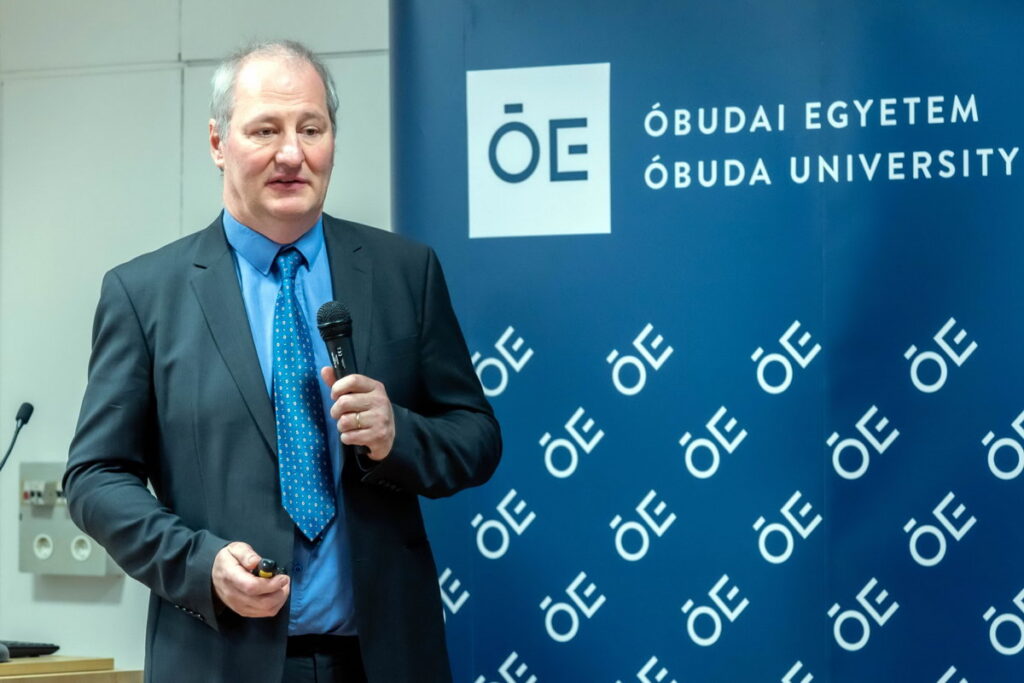
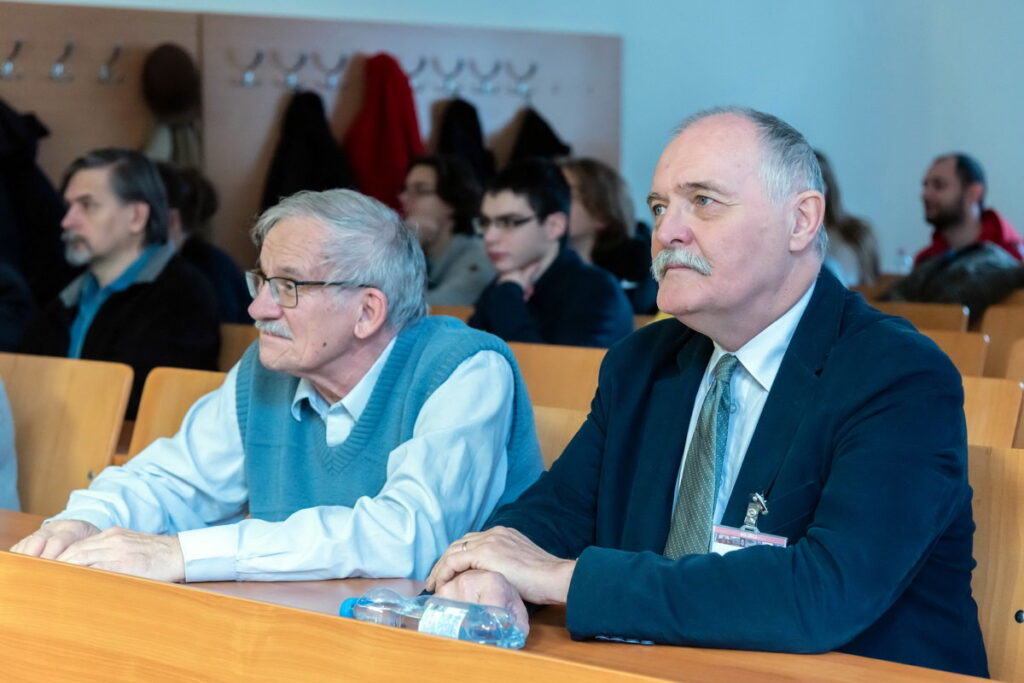
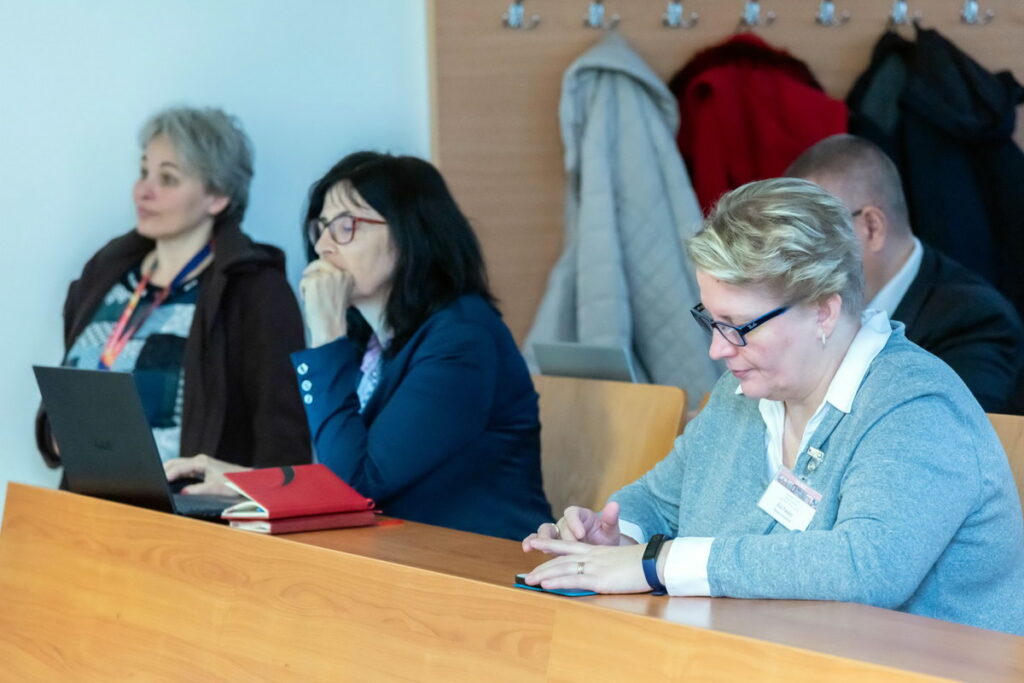
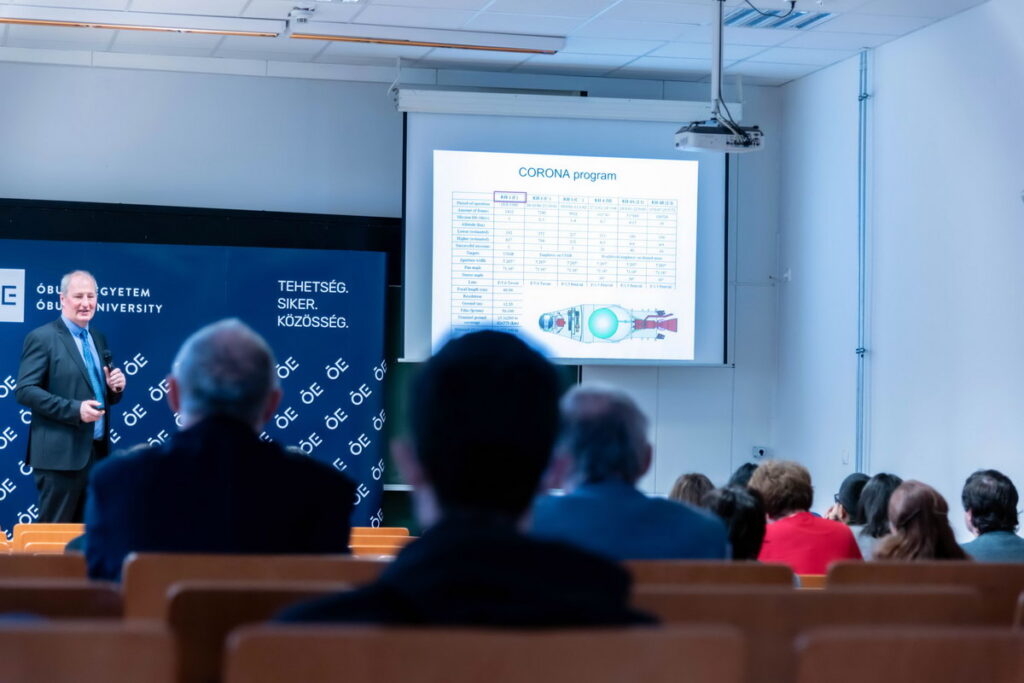
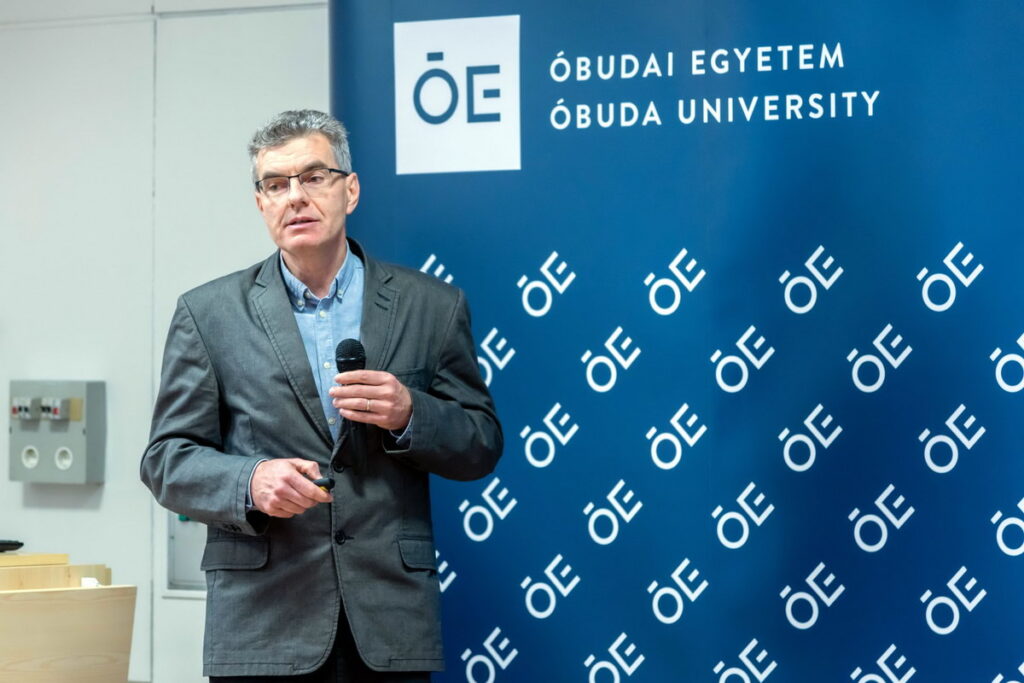
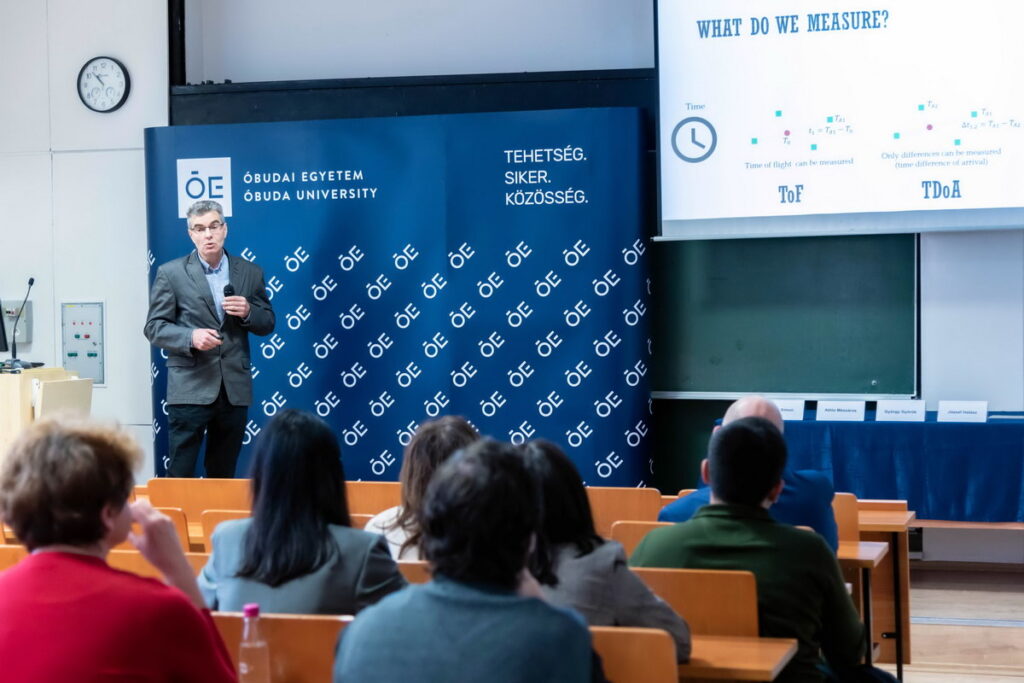
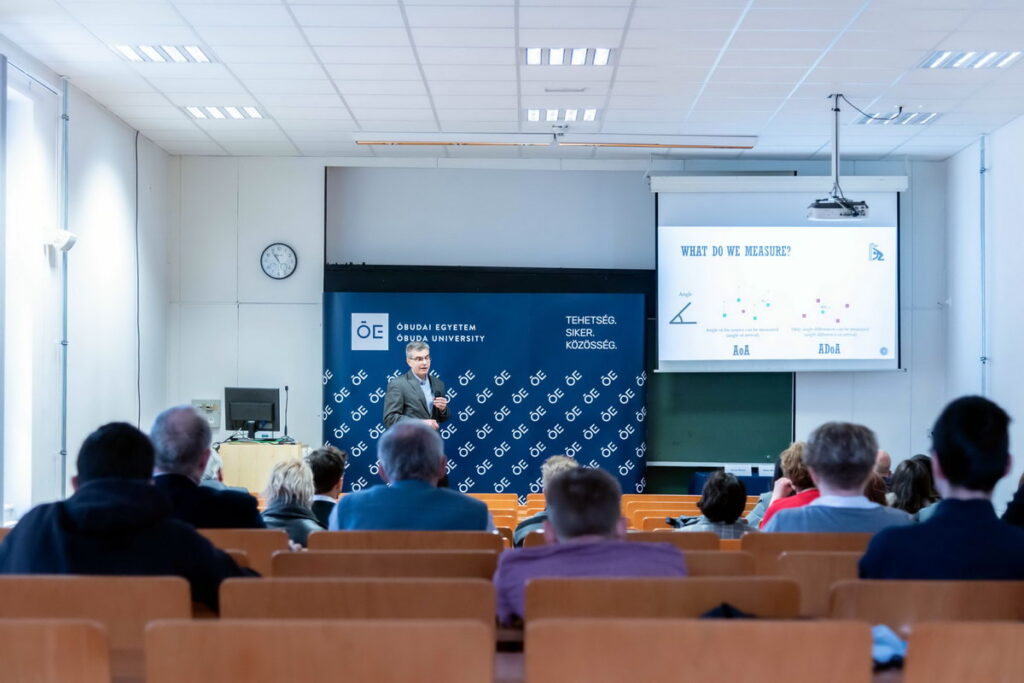
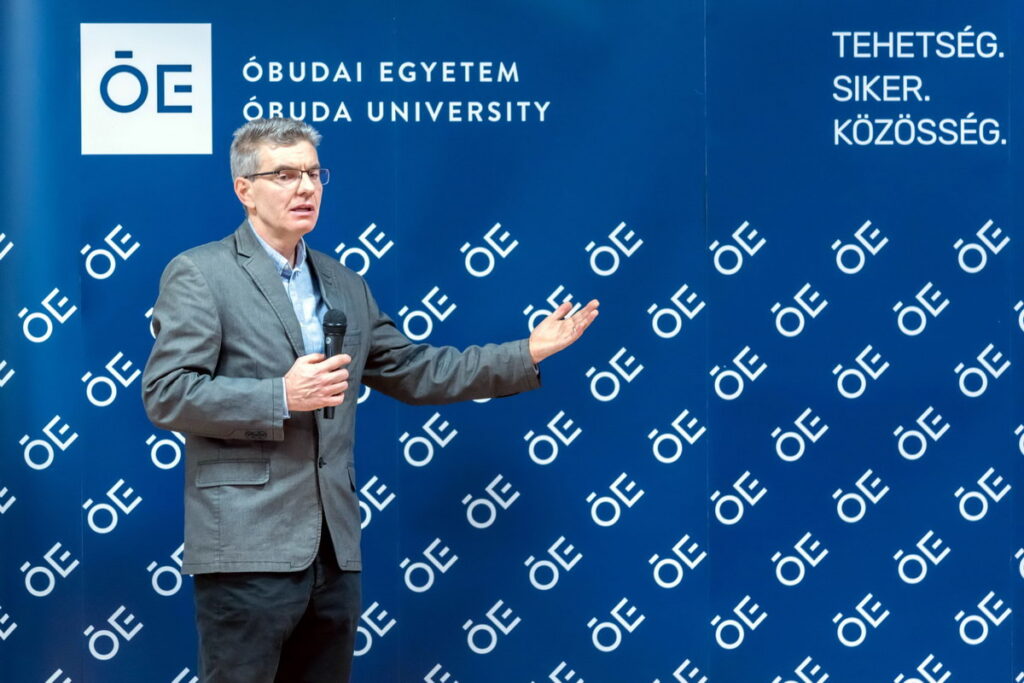
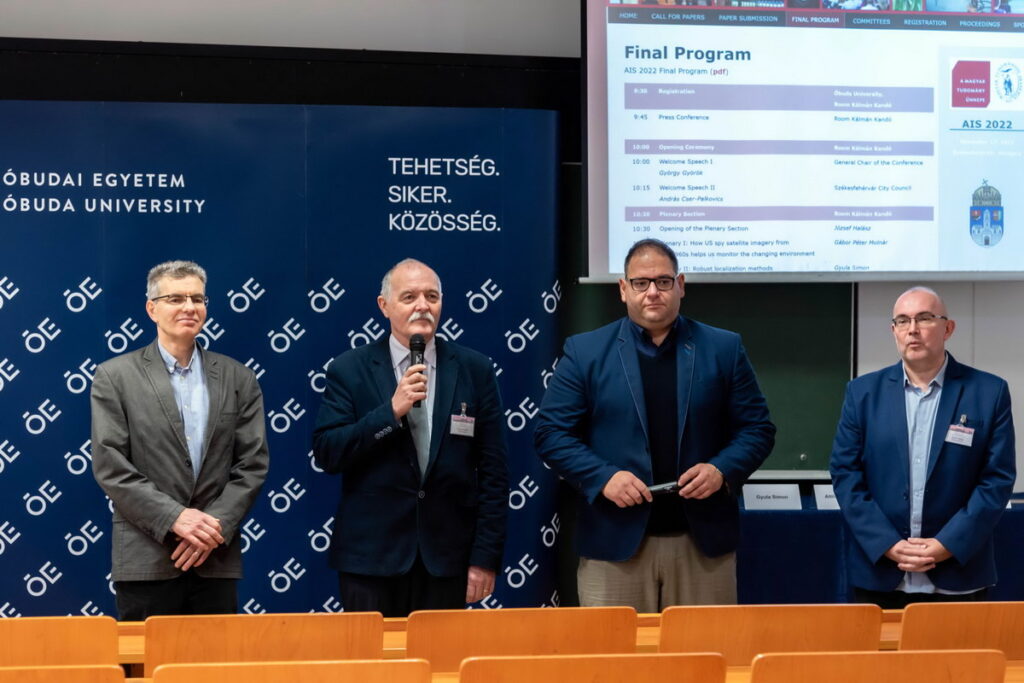
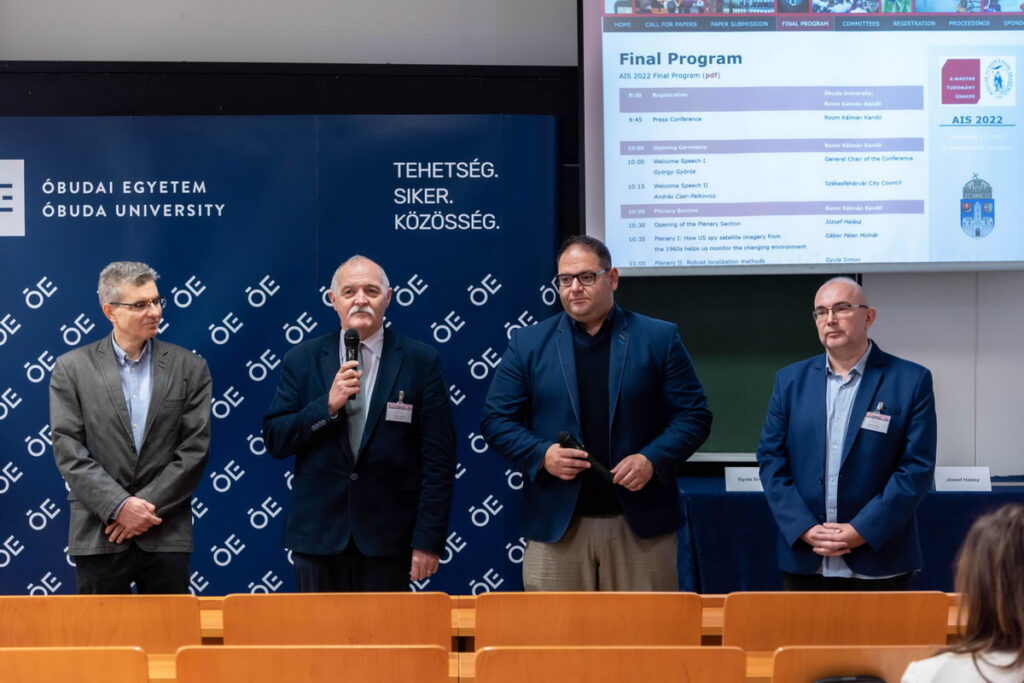
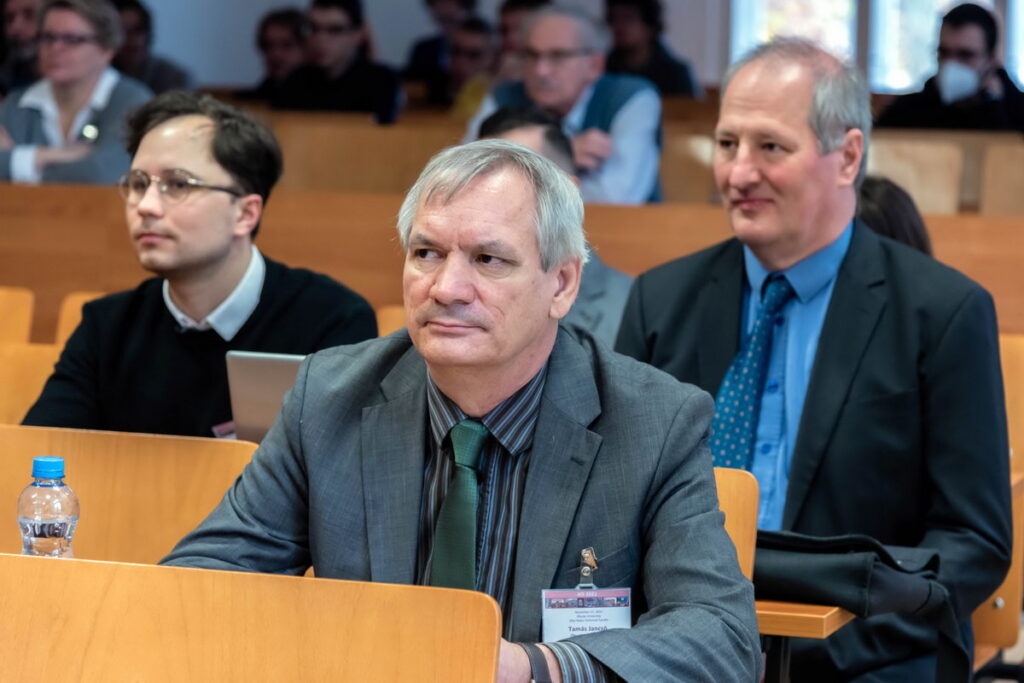
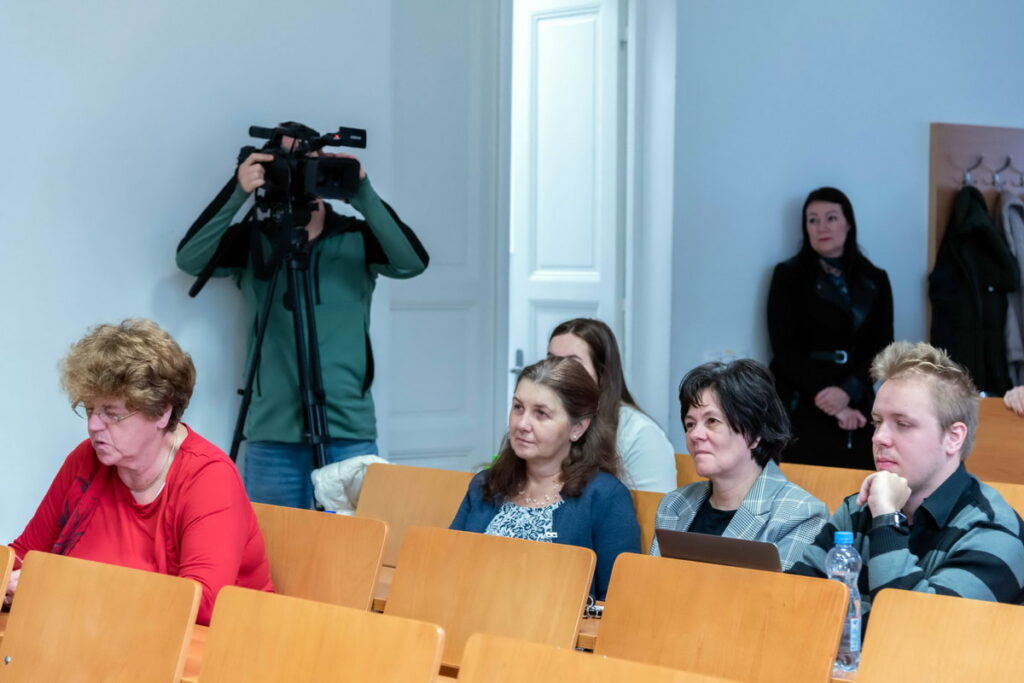

The Centre for Precision Farming Research is established within the framework of the University Research and Innovation Centre

On 16 December 2021, after the approval of the OU Senate, the Precision Farming Research Centre was established within the framework of the Obuda University Research and Innovation Centre, aiming to create an interdisciplinary research group and workshop to explore the practical application of modern technologies and their integration possibilities, especially for supporting precision farming. The centre also aims to support translational education, i.e. the up-to-date integration of high-level knowledge, technological development and application results of remote sensing, geoinformatics, sensor technology and artificial intelligence into education, which is a prerequisite for the sustainability, innovation and digitalisation of agriculture and related fields. Our Centre plays an active role in the dissemination, research and education of practical solutions for the rapidly developing agriculture and precision farming at national and international level. Focus areas: research and development of data collection tools, data sources and methods for supporting decisions in the field, and data evaluation methods. Based on previous national and international projects, educational experience (Precision Farming Engineering), successful cooperation with farmers and companies, the first work of the research centre has started. To support education and promote precision farming, an optional course “Introduction to precision farming technologies” (MsC training) has been developed to introduce precision farming technologies and to provide basic knowledge. The curriculum emphasises the practical applications of computer science and engineering in precision farming and other food production processes. Another aim is to involve university students in relevant research. Further development of the engineering curriculum is planned for this year, with a particular focus on the practical application of technology, data mining and the use of artificial intelligence.
Additional plans
- To organise a summer university/camp for students from partner universities abroad.
- Research proposals: drought monitoring, soil moisture estimation using remote sensing methods.
- Building a database of corn variety trial results to support site-specific cultivation.
Verőné Dr. Wojtaszek Małgorzata
Head of the Precision Farming Research Centre
at the University Research and Innovation Centre

Strengthening international relations at the AMK
Strengthening international relations is a key objective of Óbuda University. One of the priority target areas is Central Asia, one of the fastest growing regions in the world economy.
Our guests from our strategic partner university, the TIIAME Institute in Bukhara, Uzbekistan, Prof. Dr. Imomov Shavkat Jahonovich, Rector, and Dr. Kodir Sabirov, Head of International Relations Department, discussed with the University of Óbuda about participation in joint mobility programmes, the organisation of joint innovation programmes, the organisation of BSc courses in English, the organisation of internships for Uzbek students, and the joint, shared PhD thesis management.
Among the targeted joint research areas, the potential application of geospatial information technology and remote sensing in agriculture was mentioned. One of the priority research topics is soil degradation, i.e. the continuous deterioration of soil fertility, which is a growing problem in Uzbekistan. The deterioration of soil structure and unfavourable hydrological properties is one of the causes, e.g. the formation of a compact “pad-clay” layer on the surface and/or below the surface, cemented layers. This factor limiting water infiltration into the soil is a very serious problem in the Buhara region. According to the Rector, the thickness of the sealing layer is increasing by almost 1 cm per year. This problem is not unknown in Hungary. In addition to assessing soil degradation by remote sensing and field measurements, the aim of the planned joint research is to develop indicators (indicators) that can be used to characterise the quality of soil problems.
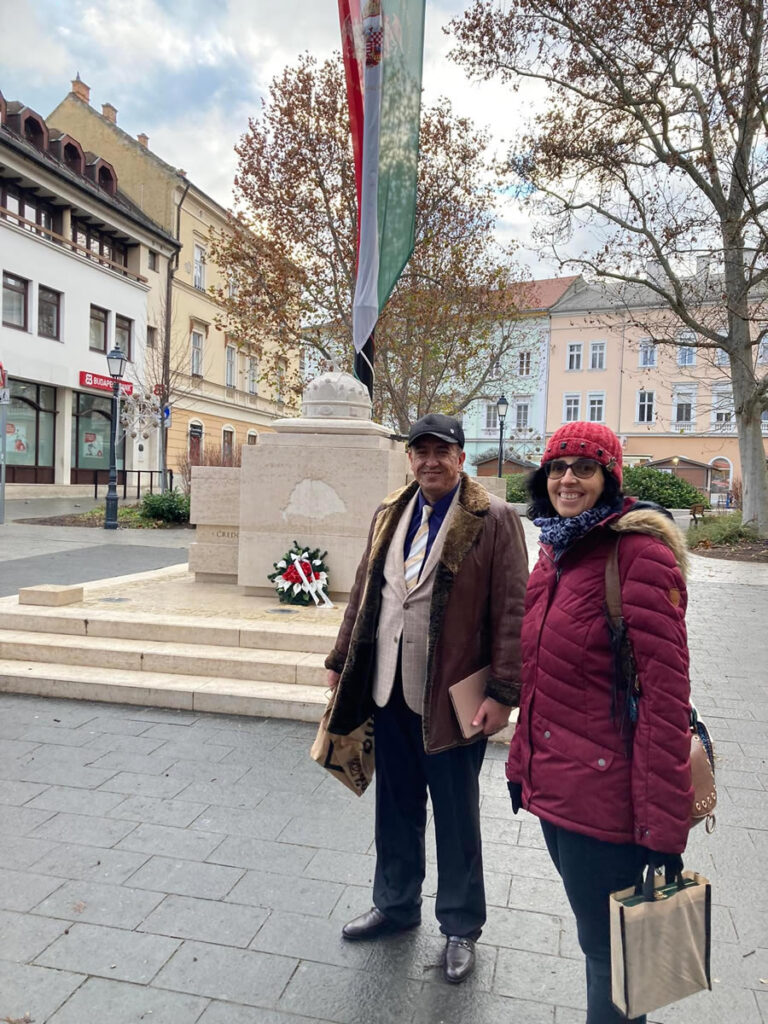
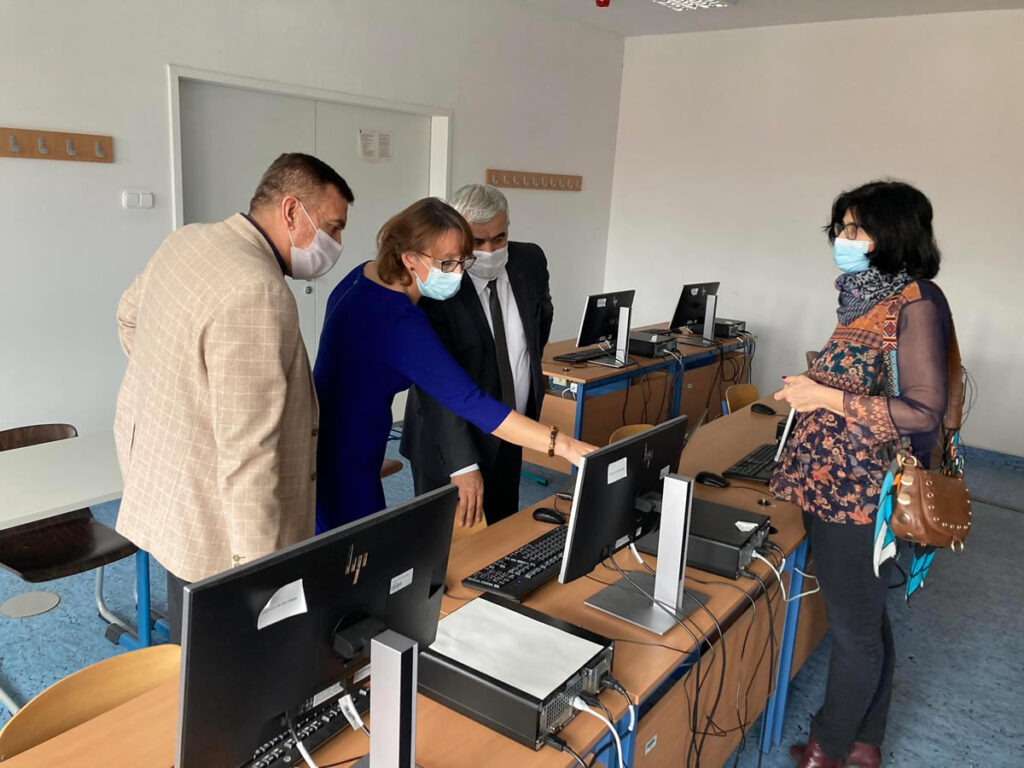
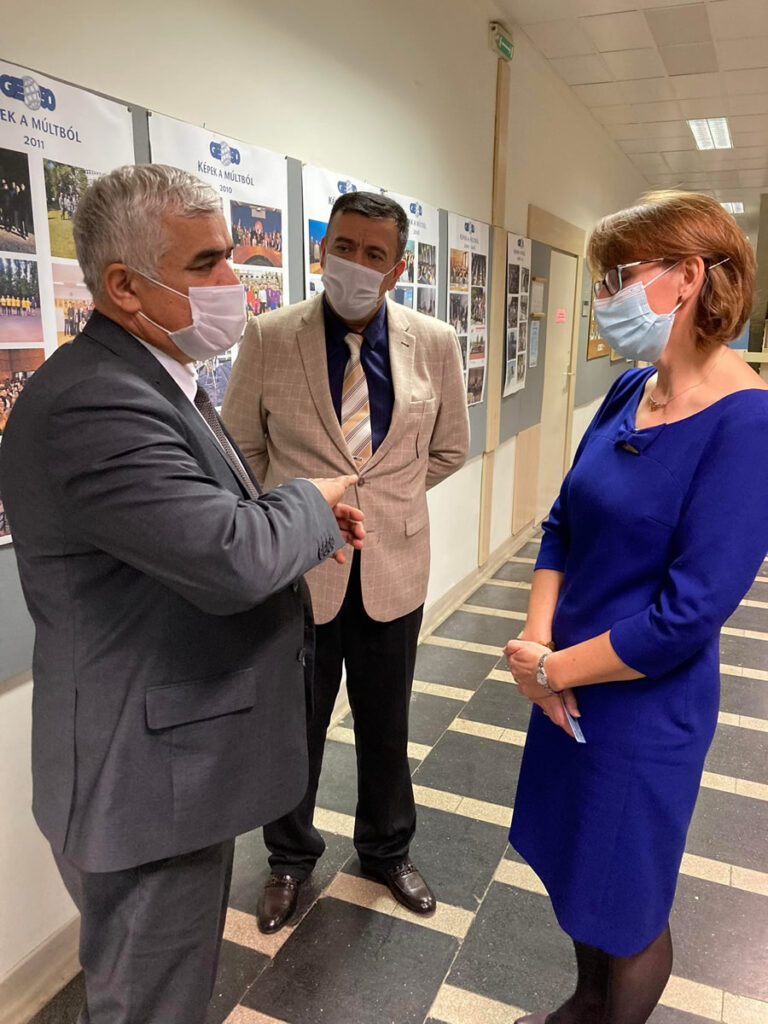
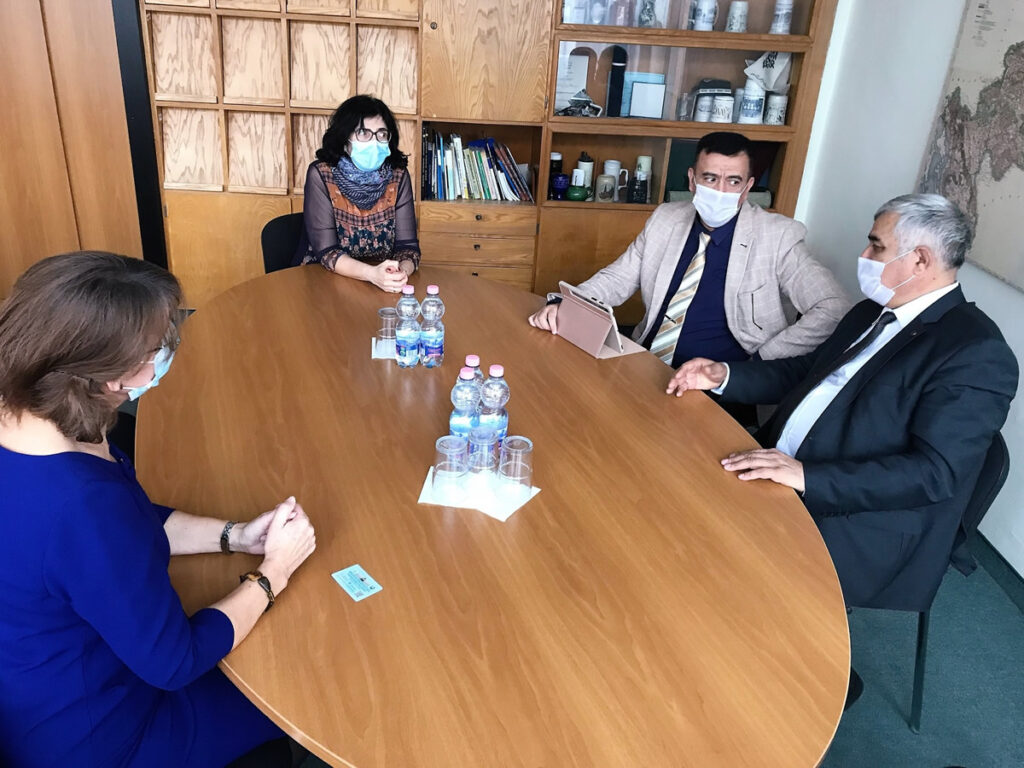

FANUC Olympics
The Team of Students of the University of Óbuda qualified themselves
for the Worldskills Shanghai 2022 International Competition.
The FANUC Olympics was held in Törökbálint at the headquarters of Fanuc Hungary in November,2021. The student competitors had to complete a complex task in a 9-hour time frame, where the industrial robot picks up a workpiece, assembles it, and finally checks to see if the workpiece is satisfactory.
First and second places of the competition were won by the University of Óbuda.
Preparatory teacher: Dr. Károly Széll
1st place: Bálint Károly Farkas and Erik Kovács
2nd place: Márk Liszi and Gábor Molnár
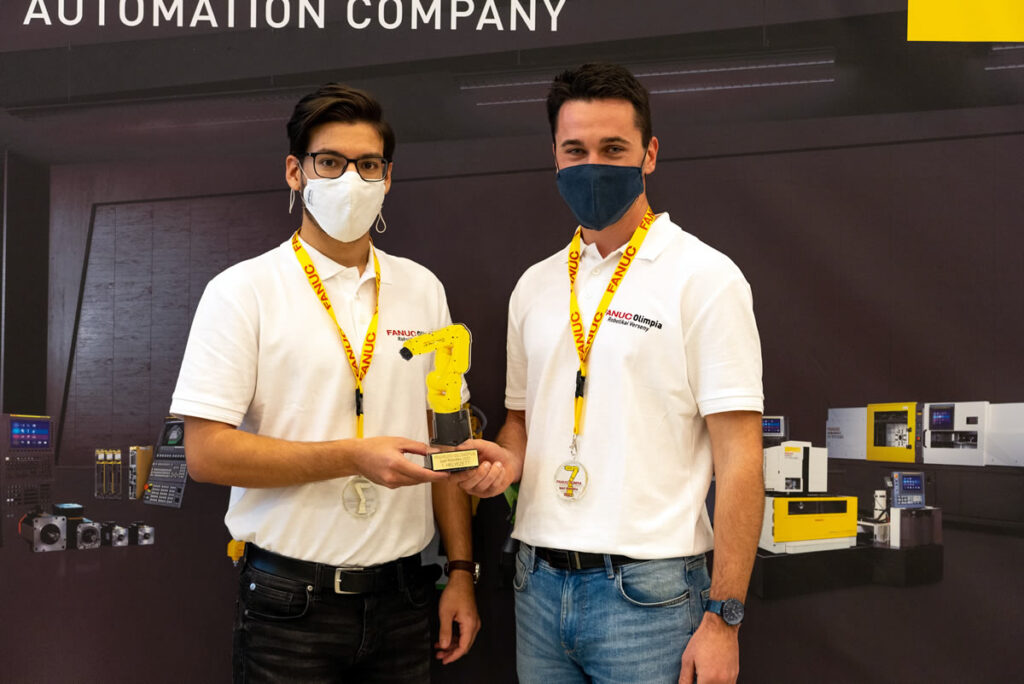
The top-ranked team qualified for the Worldskills Shanghai 2022 International Competition with this competition, where they will compare their skills with engineering teams from other nations in the Robot Systems Integration section within Engineering and Manufacturing Technologies.
More about the event: https://worldskills2022.com/en/event/skills/
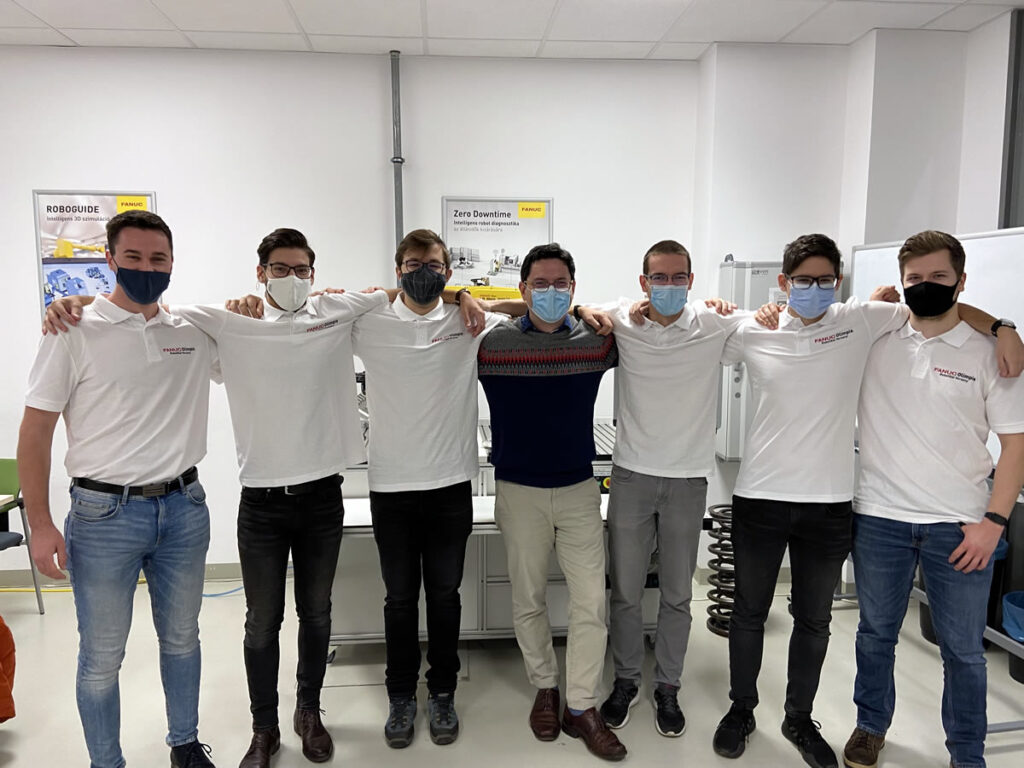
The members of the standby team were József Gergő Kálmán and Mátyás Marx. They were also present cheering for their team.
The Student Teams would like to thank the Fanuc Hungary team for making the three days of the competition excellently organised and memorable for the participants. Special thanks to the experts: István Bíró, Ákos Horváth and András Bablena.
Erik Kovács
student
